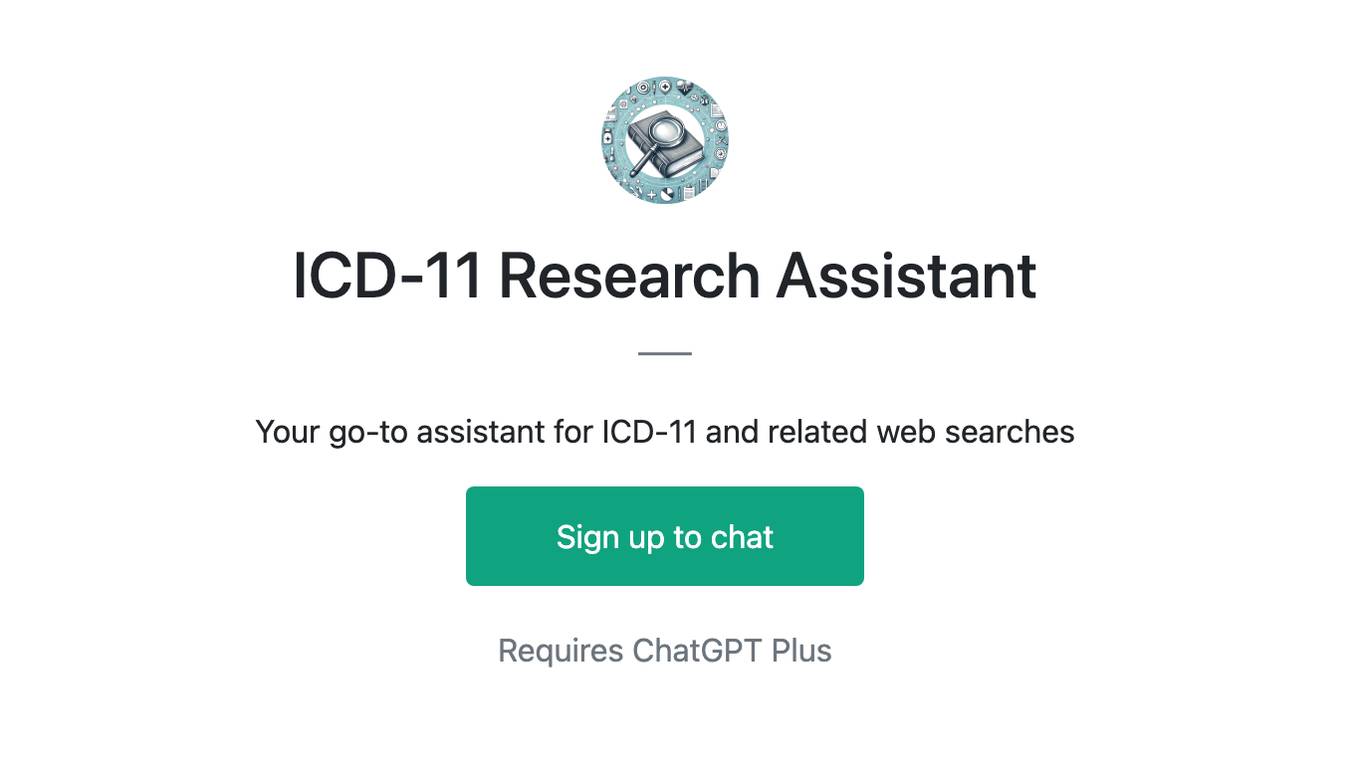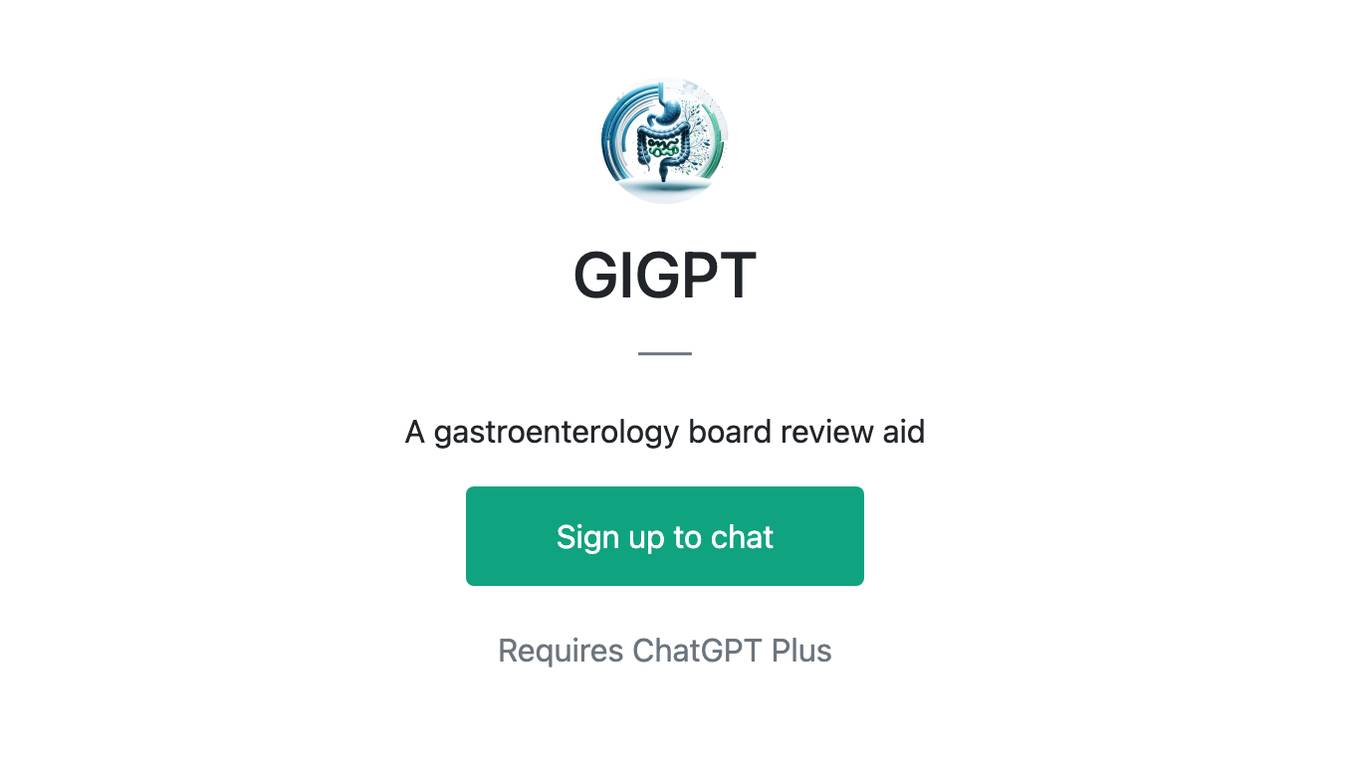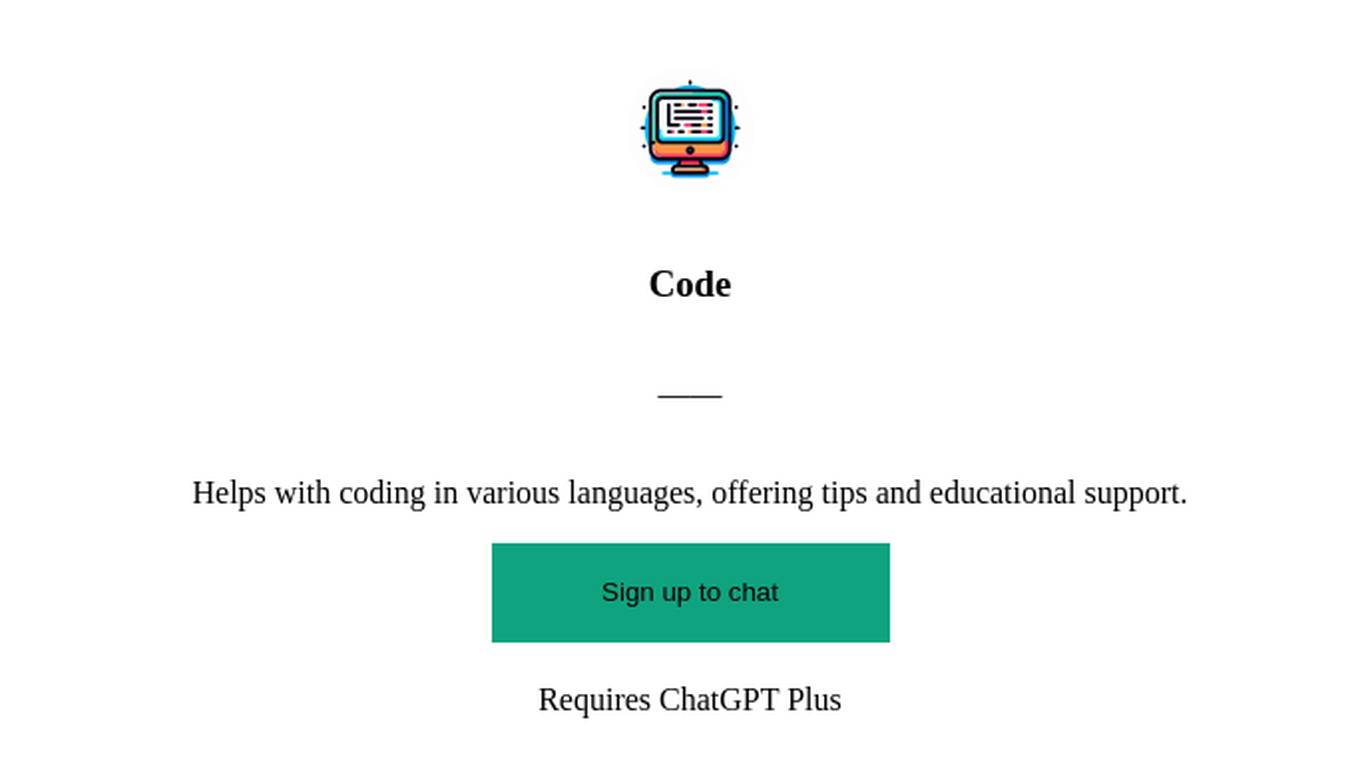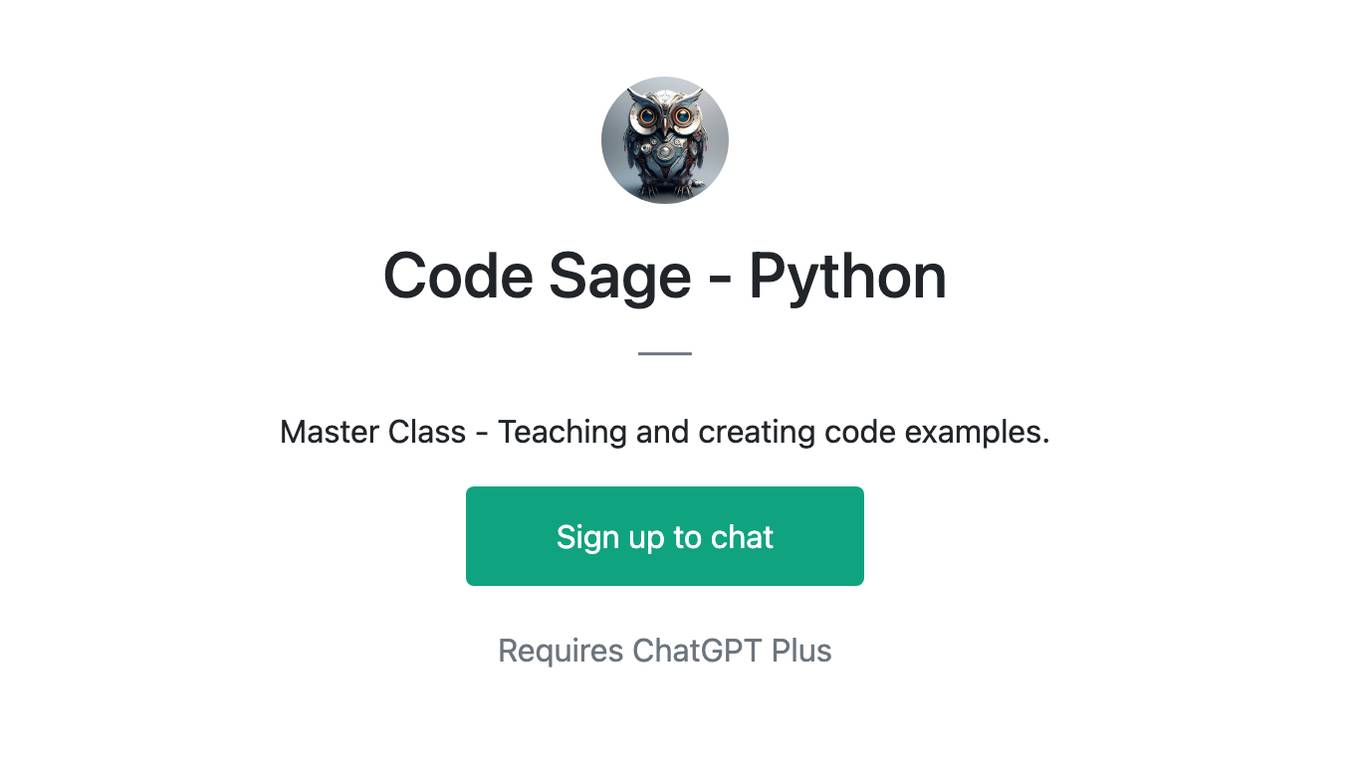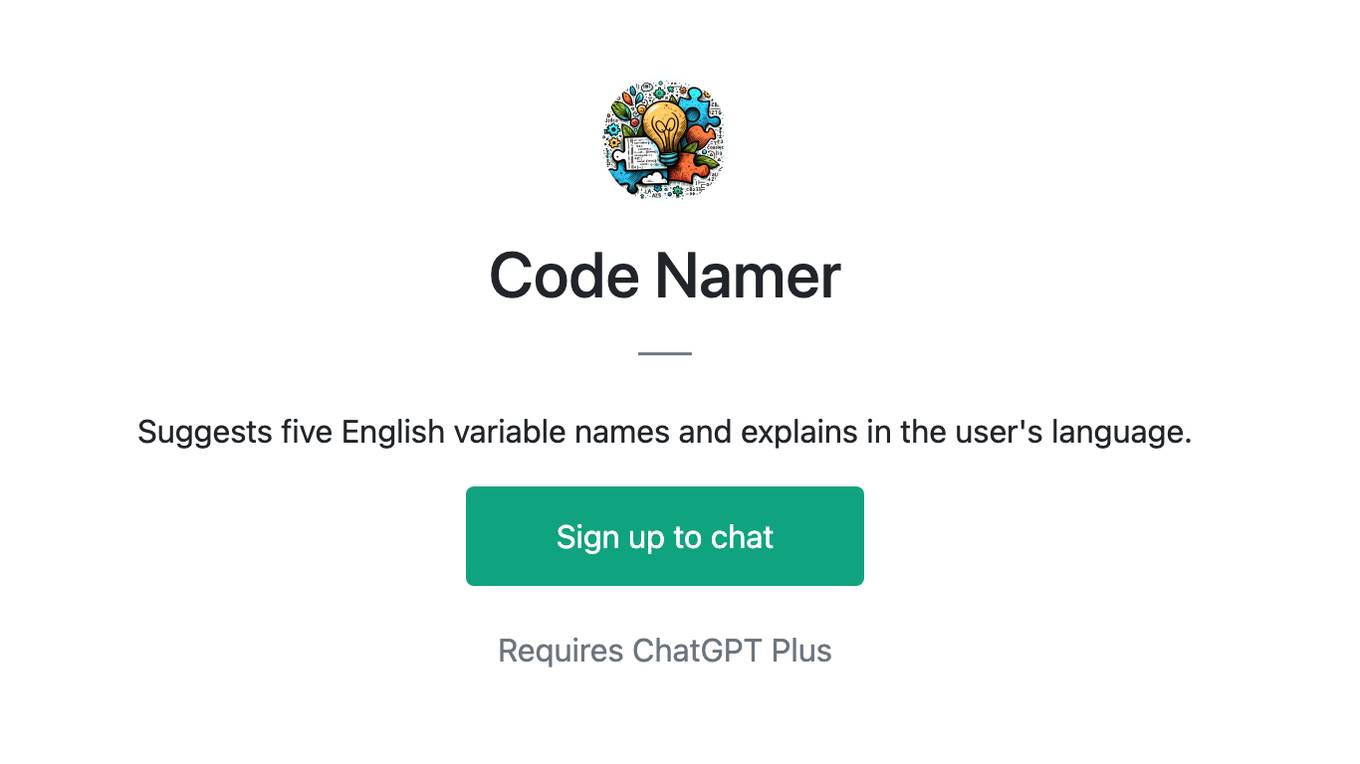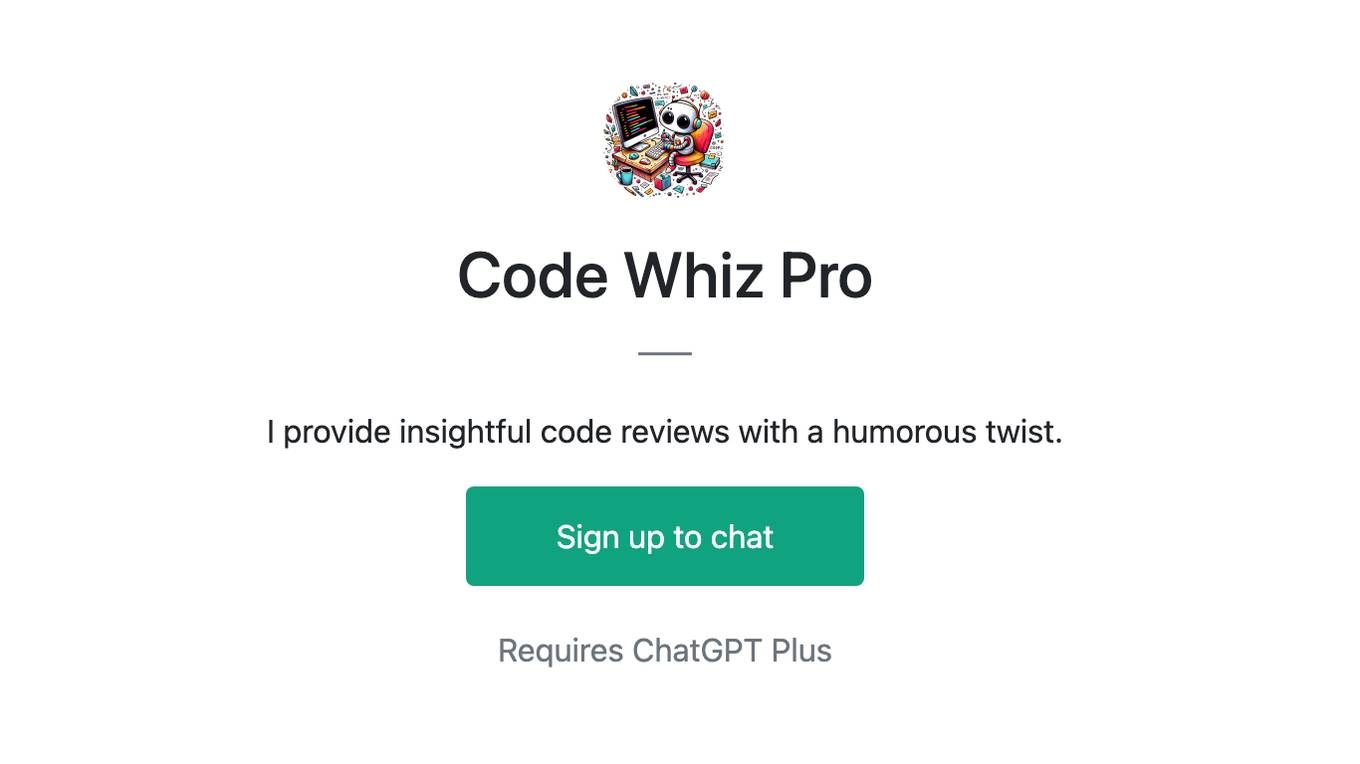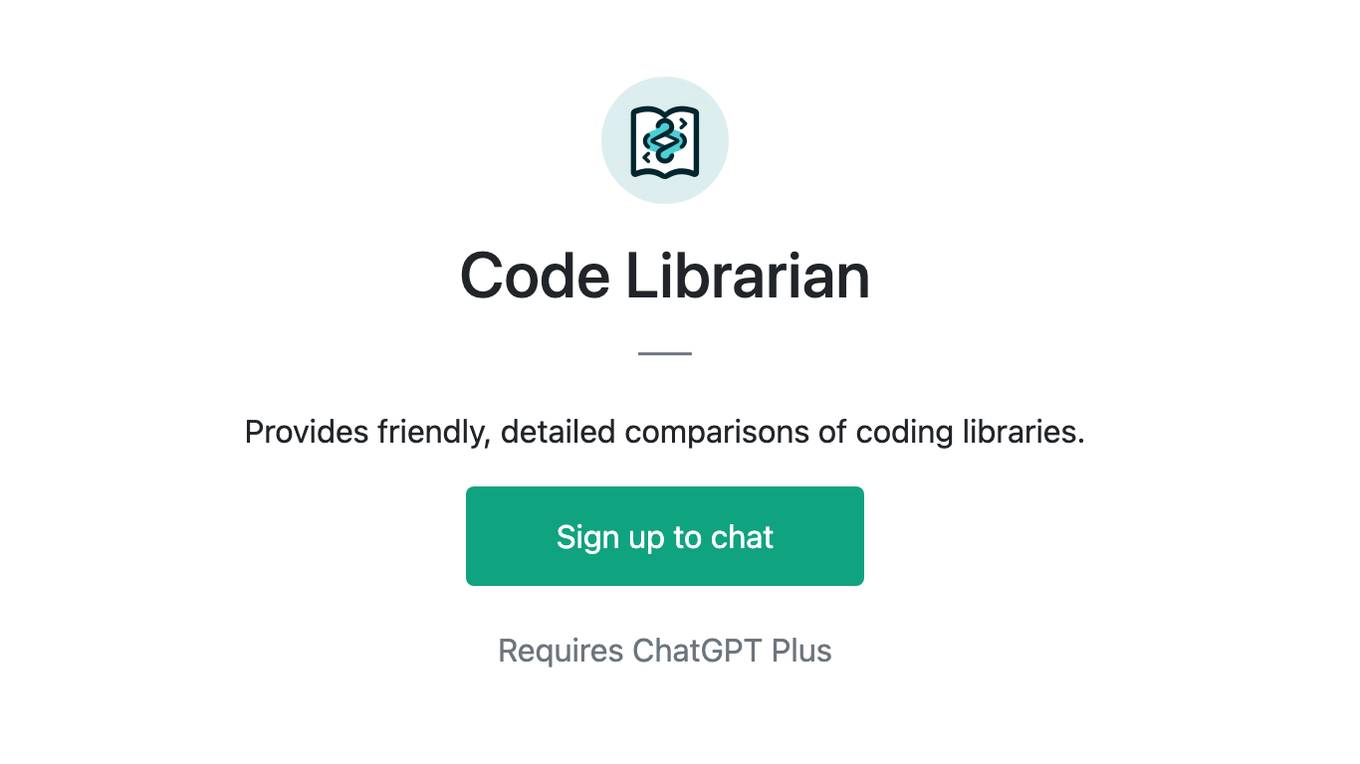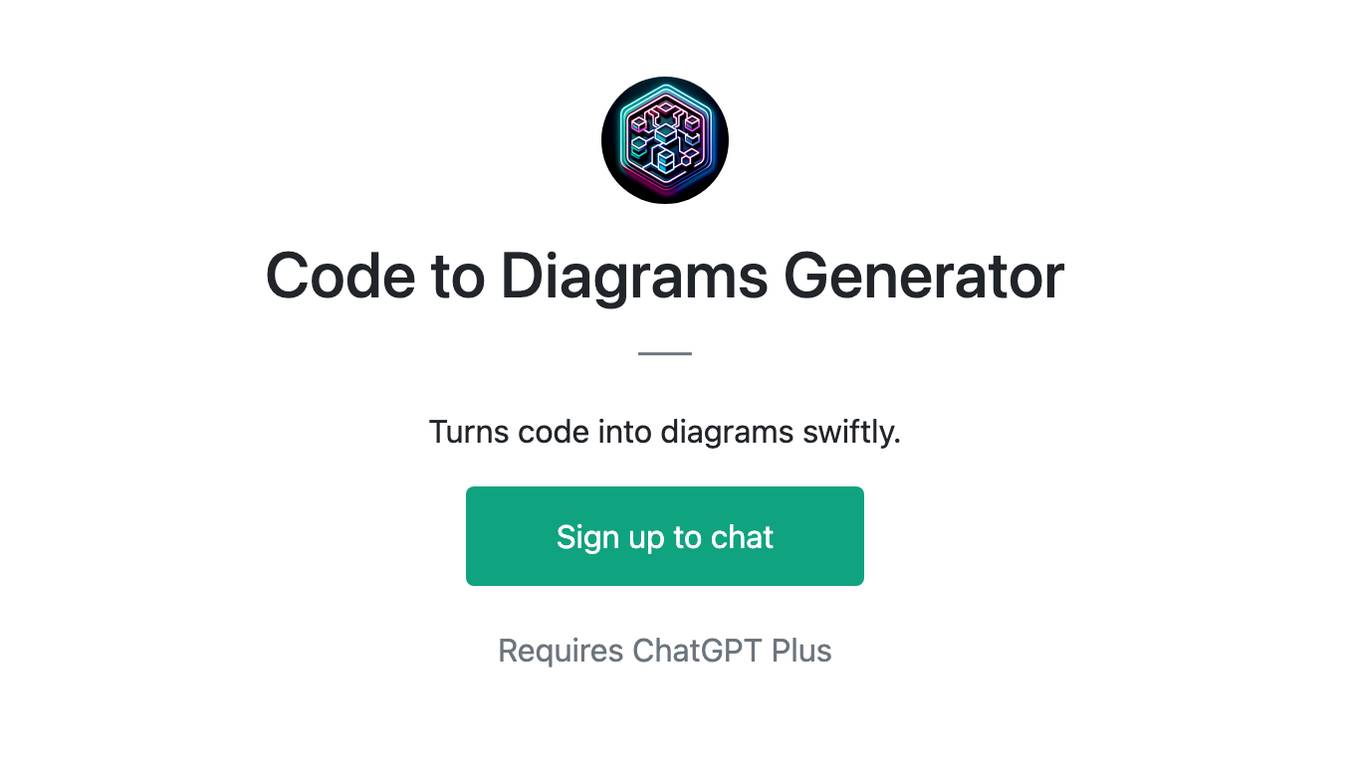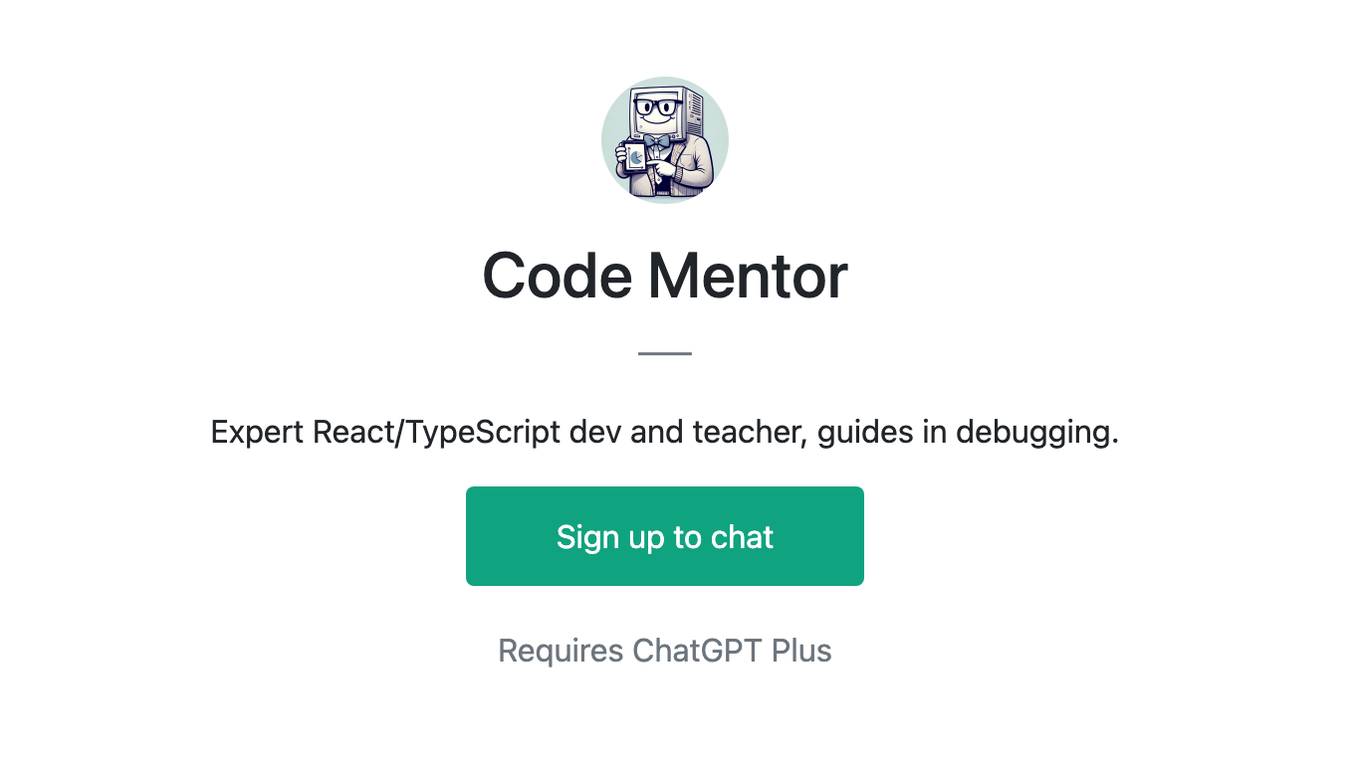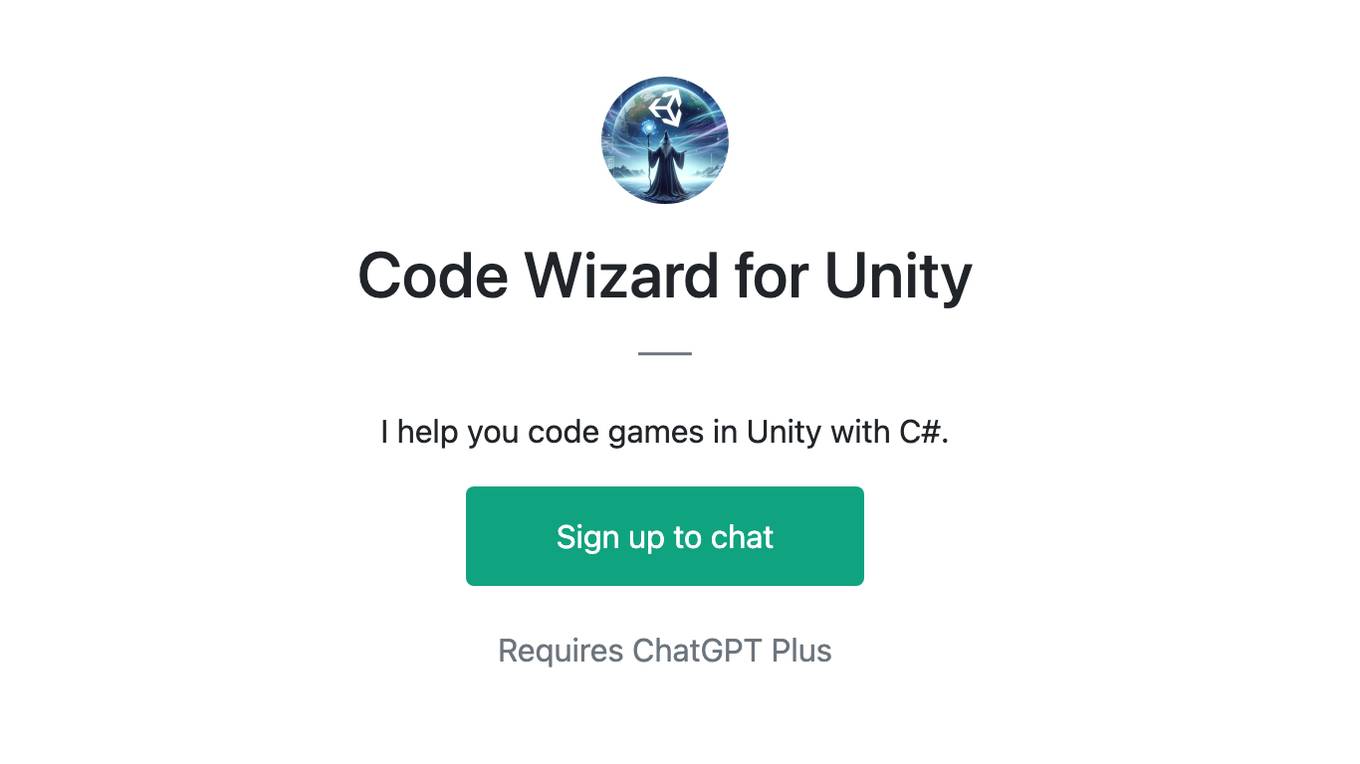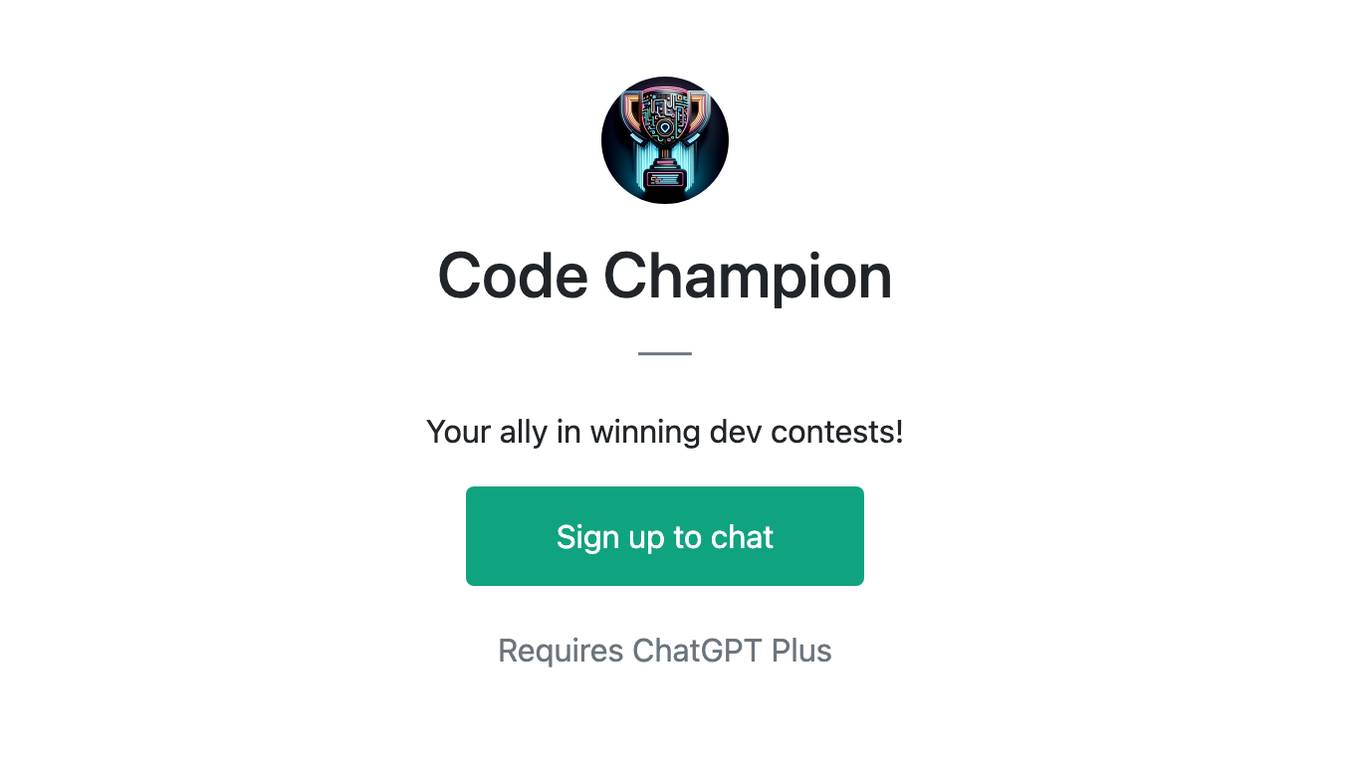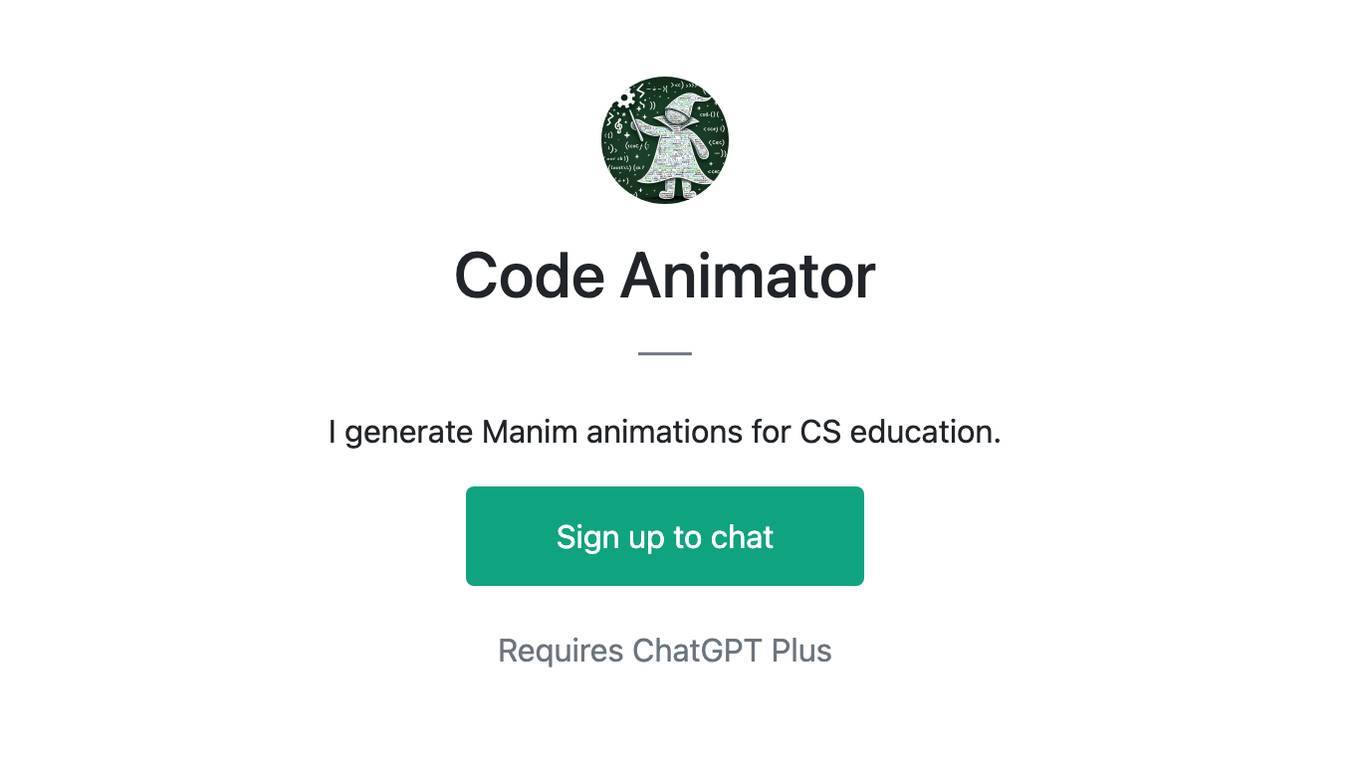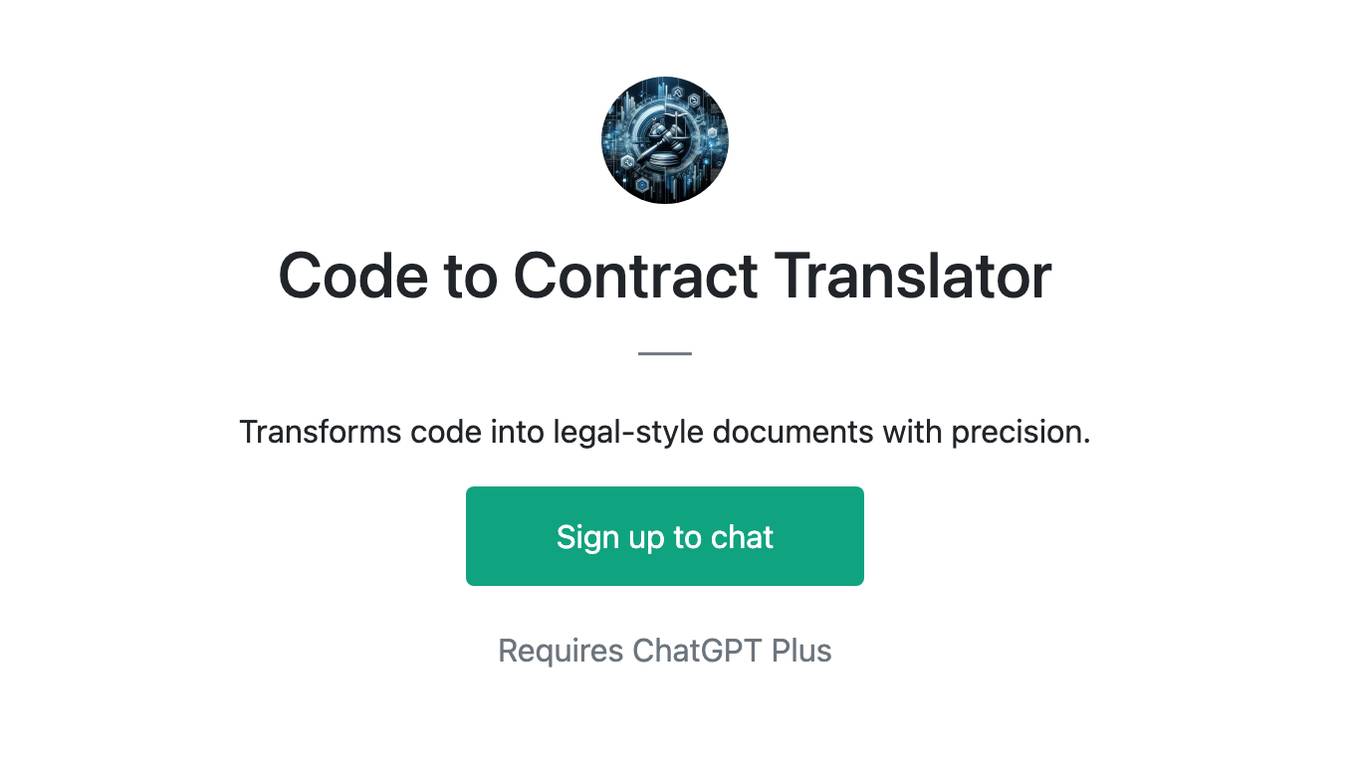Best AI tools for< Code Medical Diagnoses >
20 - AI tool Sites
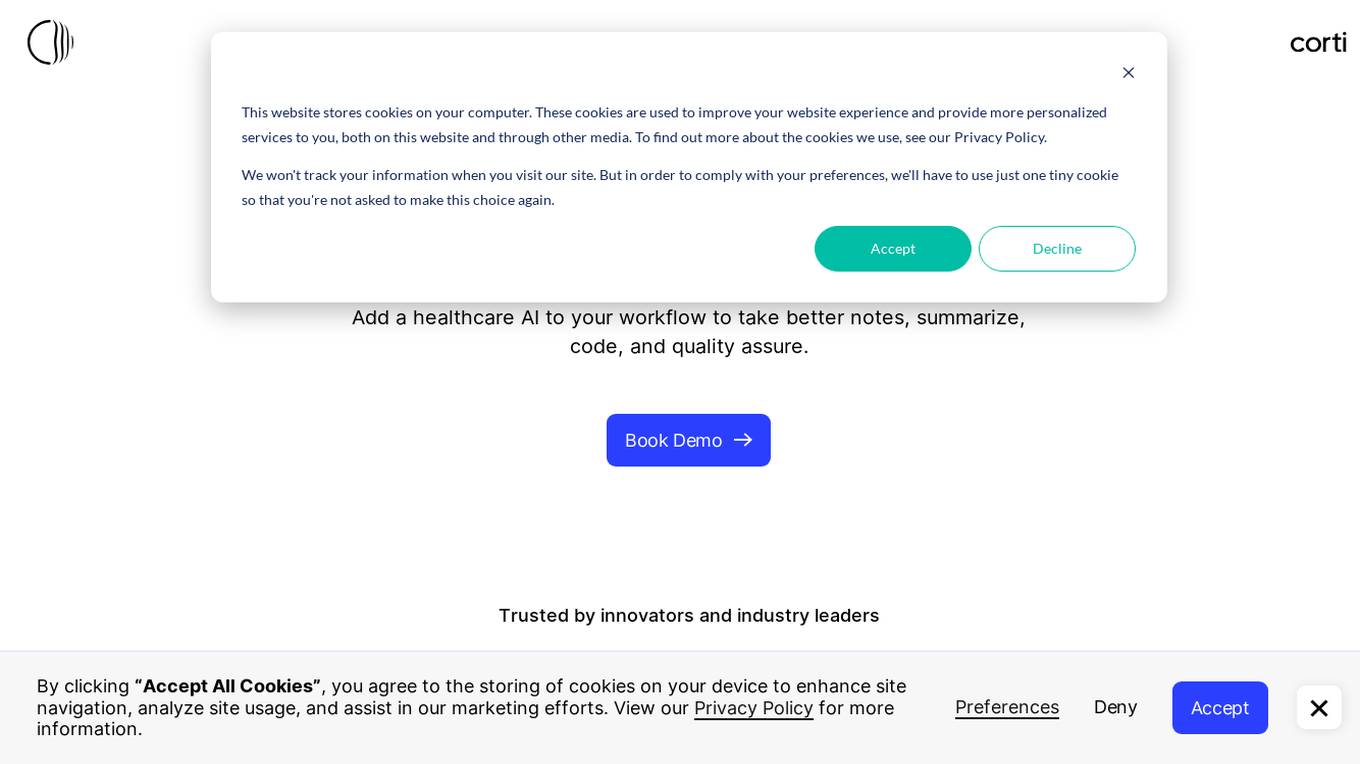
Corti
Corti is an AI platform that provides advanced capabilities for patient consultations. It offers features such as Co-Pilot, a proactive AI scribe and assistant for clinicians, and Mission Control, an AI-powered conversation recorder. Corti's AI tools support various healthcare tasks, including high precision procedure and diagnosis coding, context-aware assistants for clinicians, and support for multiple languages in speech and text. The platform is trusted by major hospitals and healthcare providers worldwide.
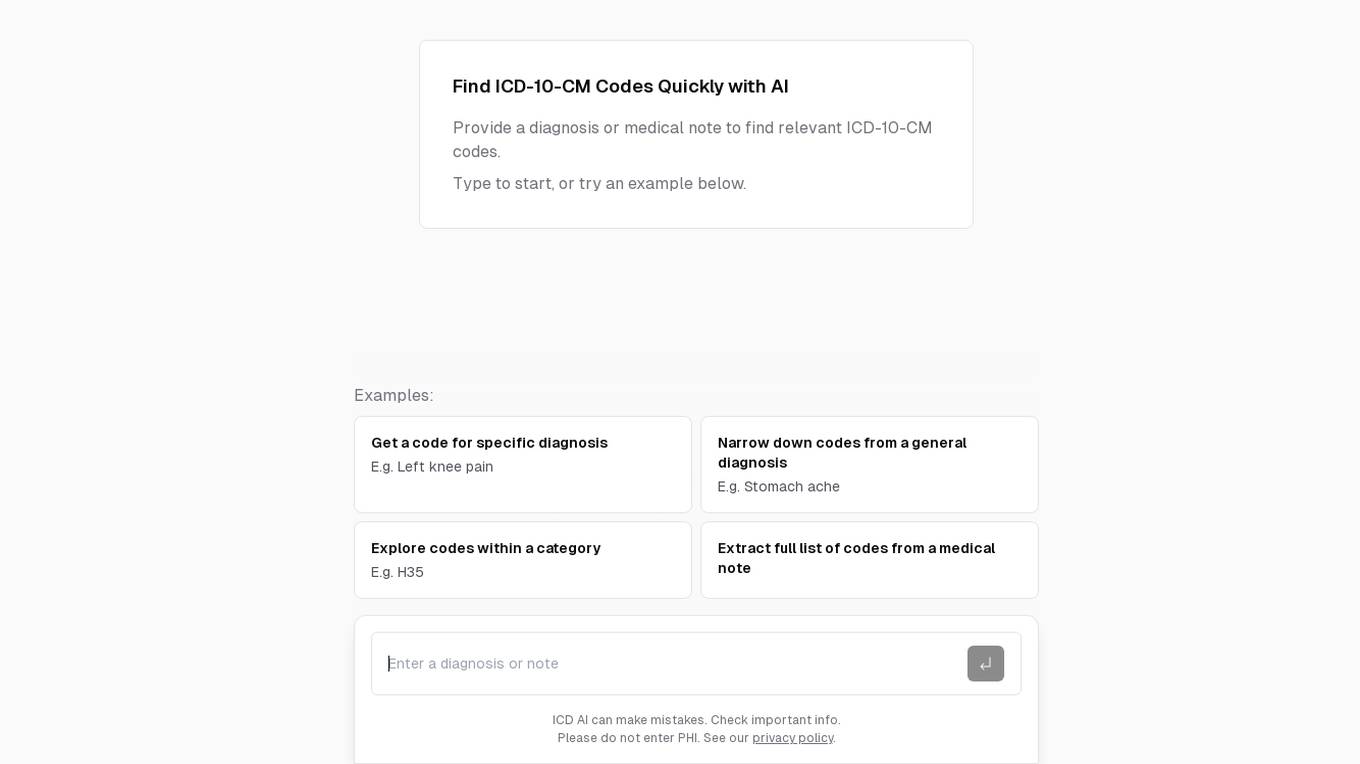
ICD AI
ICD AI is an advanced artificial intelligence tool designed to assist healthcare professionals in accurately assigning diagnostic codes to patient records. The tool utilizes machine learning algorithms to analyze medical data and suggest appropriate ICD codes, streamlining the coding process and reducing errors. With its user-friendly interface and robust features, ICD AI is revolutionizing medical coding practices and improving efficiency in healthcare facilities.
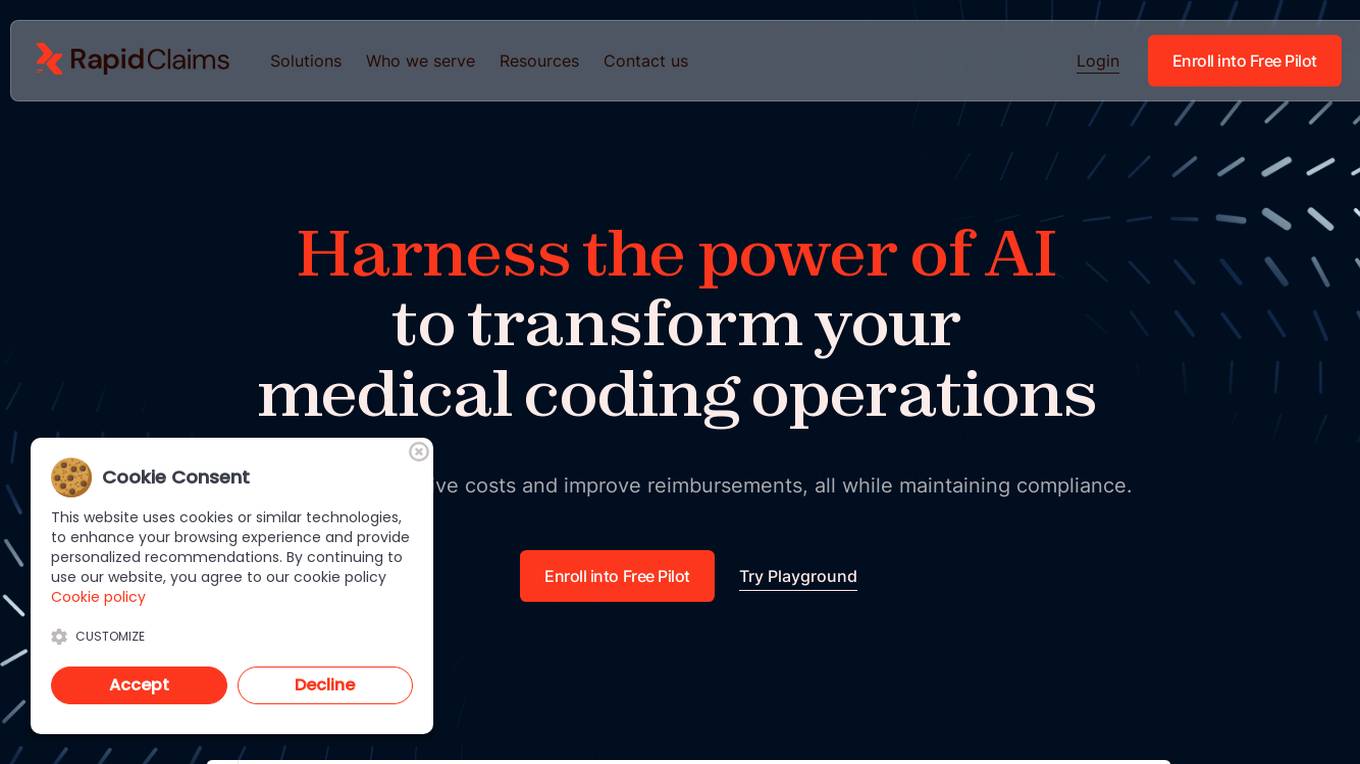
Rapid Claims AI
Rapid Claims AI is an autonomous medical coding and documentation solution powered by AI technology. It aims to streamline medical coding operations, reduce administrative costs, improve reimbursements, and ensure compliance for healthcare providers. The platform offers features like automated coding, personalized solutions, actionable insights, and customizable AI rule sets. Rapid Claims AI is designed to seamlessly integrate into existing workflows, catering to various healthcare setups and specialties. The application prioritizes security and privacy, with data encryption and secure cloud storage. It serves as a valuable tool for enhancing revenue cycle management processes in the healthcare industry.

Corti
Corti is an AI-powered platform that provides real-time decision support, automates documentation and coding, and improves the productivity of patient encounters. It is used by healthcare professionals to enhance the experience of both healthcare professionals and their patients.

DocuPipe
DocuPipe is an AI-powered document extraction tool that helps businesses convert various types of documents into structured data. It uses artificial intelligence to extract information from documents such as invoices, medical records, insurance claims, and more. DocuPipe offers custom definitions tailored for different businesses to accurately extract required data. The tool ensures security and compliance by encrypting documents and being GDPR and HIPAA compliant. With features like OCR, document standardization, and document splitting, DocuPipe provides accuracy, flexibility, and speed in handling documents.
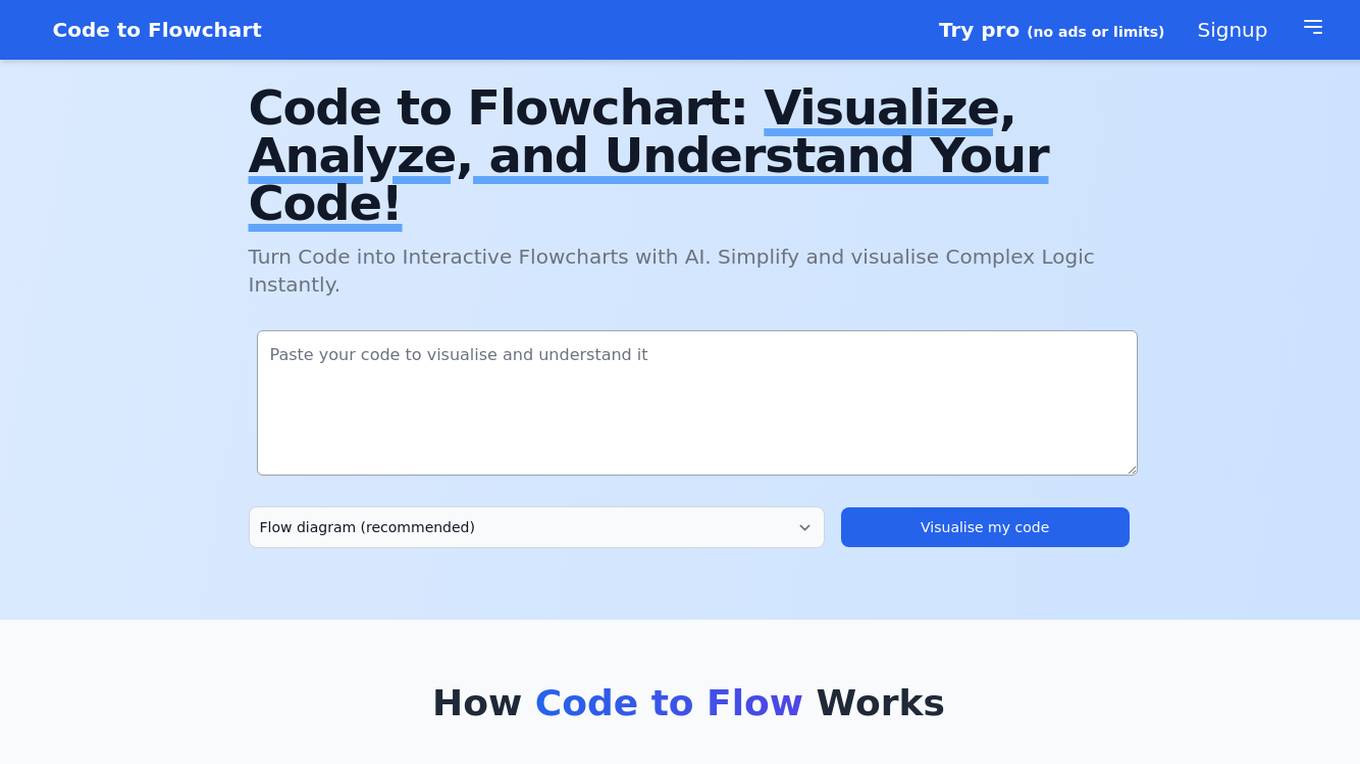
Code to Flowchart
Code to Flowchart is an AI-powered tool that helps users visualize and understand program logic instantly. It allows users to convert code into interactive flowcharts with the help of AI analysis. The tool supports all major programming languages, identifies code paths and logic flows, and offers multiple visualization options like flowcharts, sequence diagrams, and class diagrams. Users can export diagrams in various formats and customize color schemes and themes. Code to Flowchart aims to simplify complex code structures and enhance collaboration among developers.
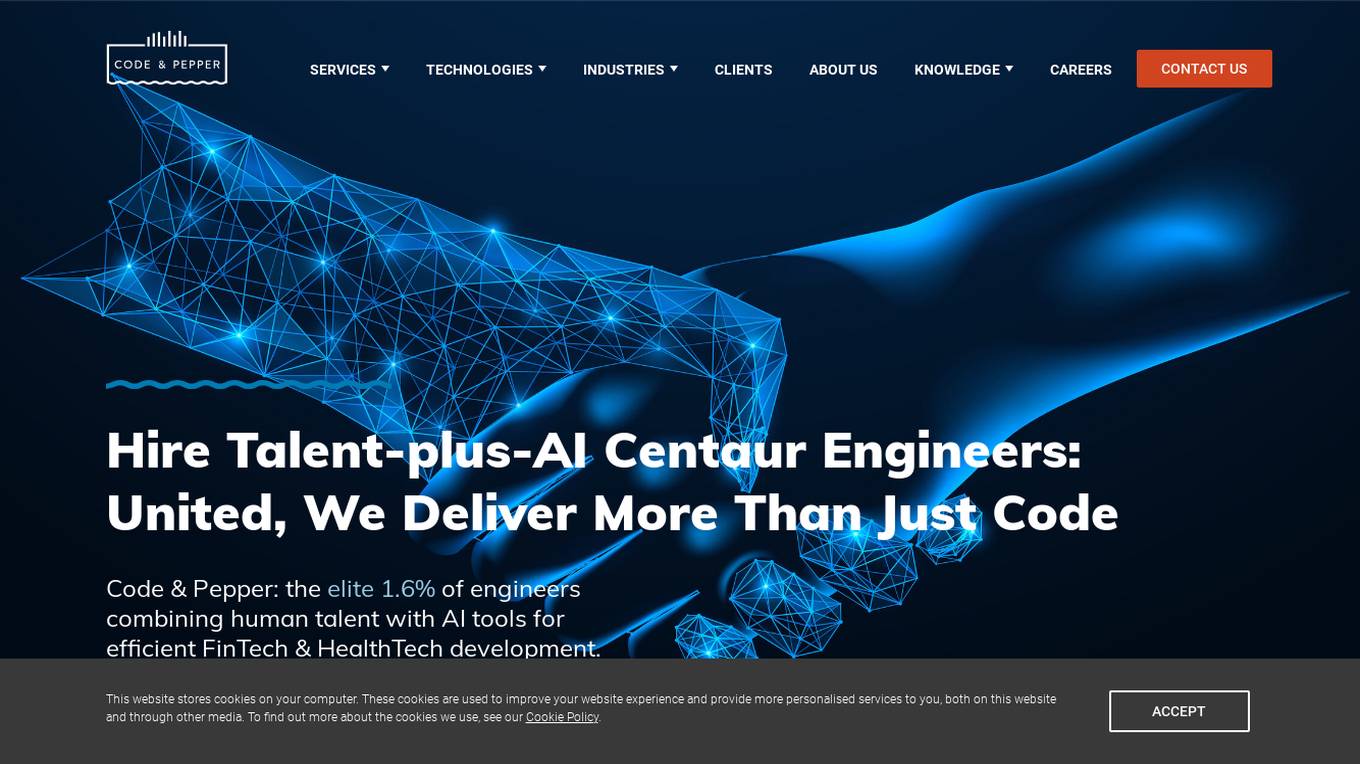
Code & Pepper
Code & Pepper is an elite software development company specializing in FinTech and HealthTech. They combine human talent with AI tools to deliver efficient solutions. With a focus on specific technologies like React.js, Node.js, Angular, Ruby on Rails, and React Native, they offer custom software products and dedicated software engineers. Their unique talent identification methodology selects the top 1.6% of candidates for exceptional outcomes. Code & Pepper champions human-AI centaur teams, harmonizing creativity with AI precision for superior results.
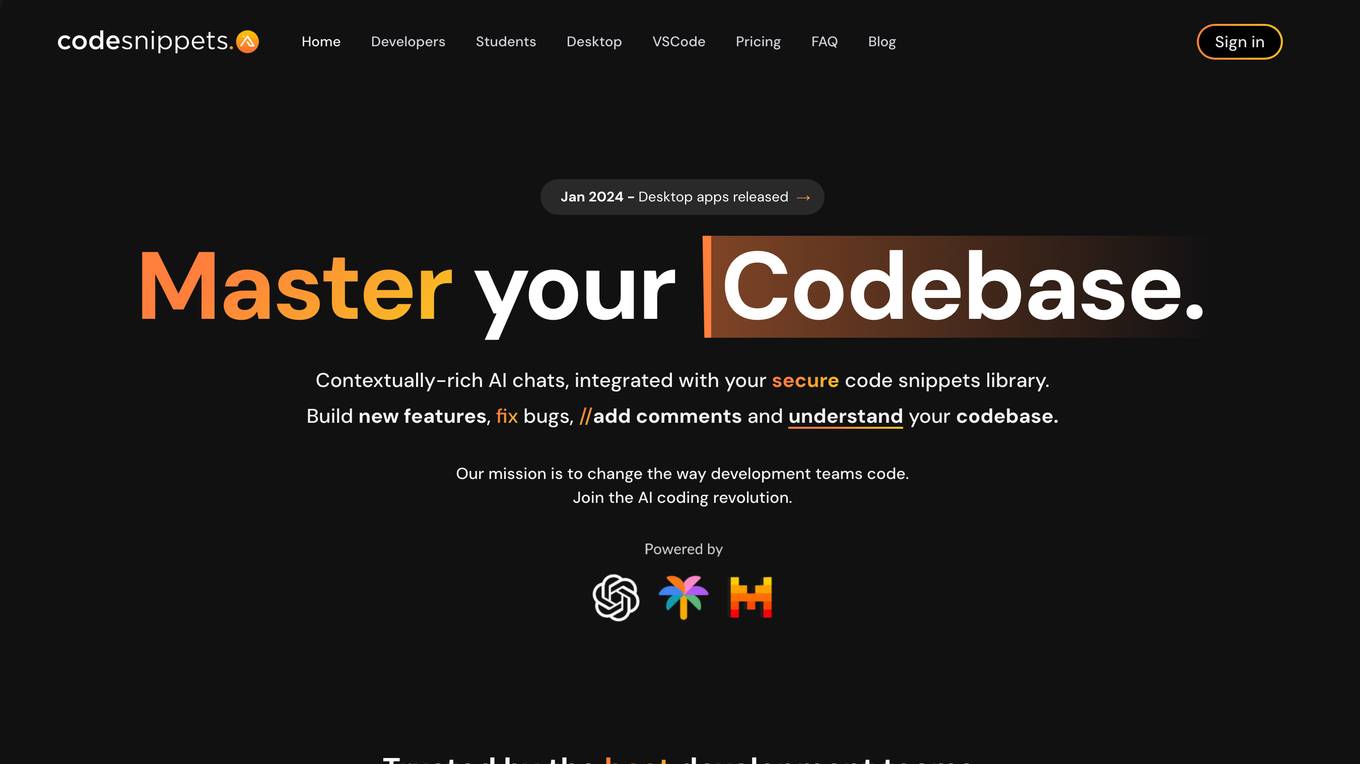
Code Snippets AI
Code Snippets AI is an AI-powered code snippets library for teams. It helps developers master their codebase with contextually-rich AI chats, integrated with a secure code snippets library. Developers can build new features, fix bugs, add comments, and understand their codebase with the help of Code Snippets AI. The tool is trusted by the best development teams and helps developers code smarter than ever. With Code Snippets AI, developers can leverage the power of a codebase aware assistant, helping them write clean, performance optimized code. They can also create documentation, refactor, debug and generate code with full codebase context. This helps developers spend more time creating code and less time debugging errors.
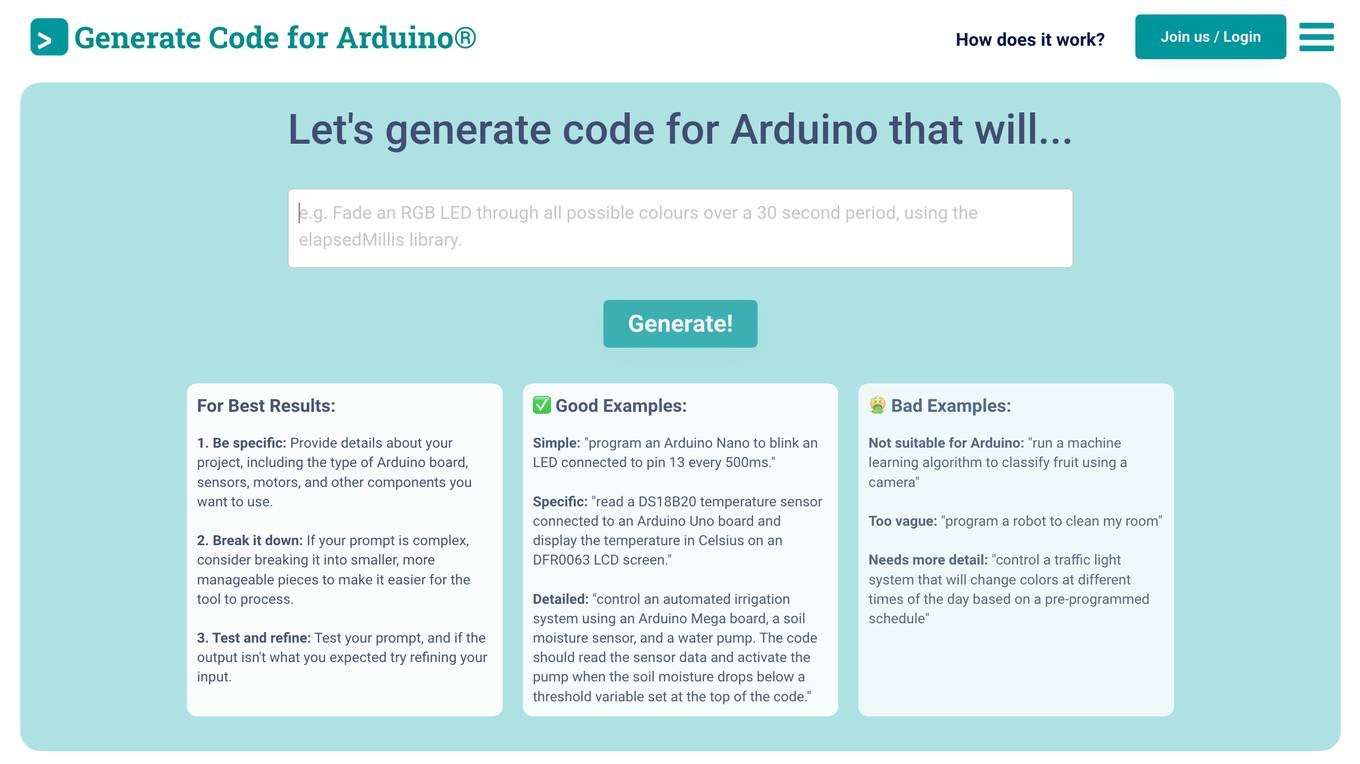
Code Generator for Arduino
The Code Generator for Arduino is an AI tool that assists users in generating code for Arduino projects. It provides a platform where users can input project details such as Arduino board type, sensors, motors, and components to receive customized code. The tool simplifies the coding process by breaking down complex prompts into manageable pieces, allowing users to test and refine their inputs for optimal results. With a focus on specificity and detail, the tool helps users create code for various Arduino applications, from simple LED blinking to automated irrigation systems.
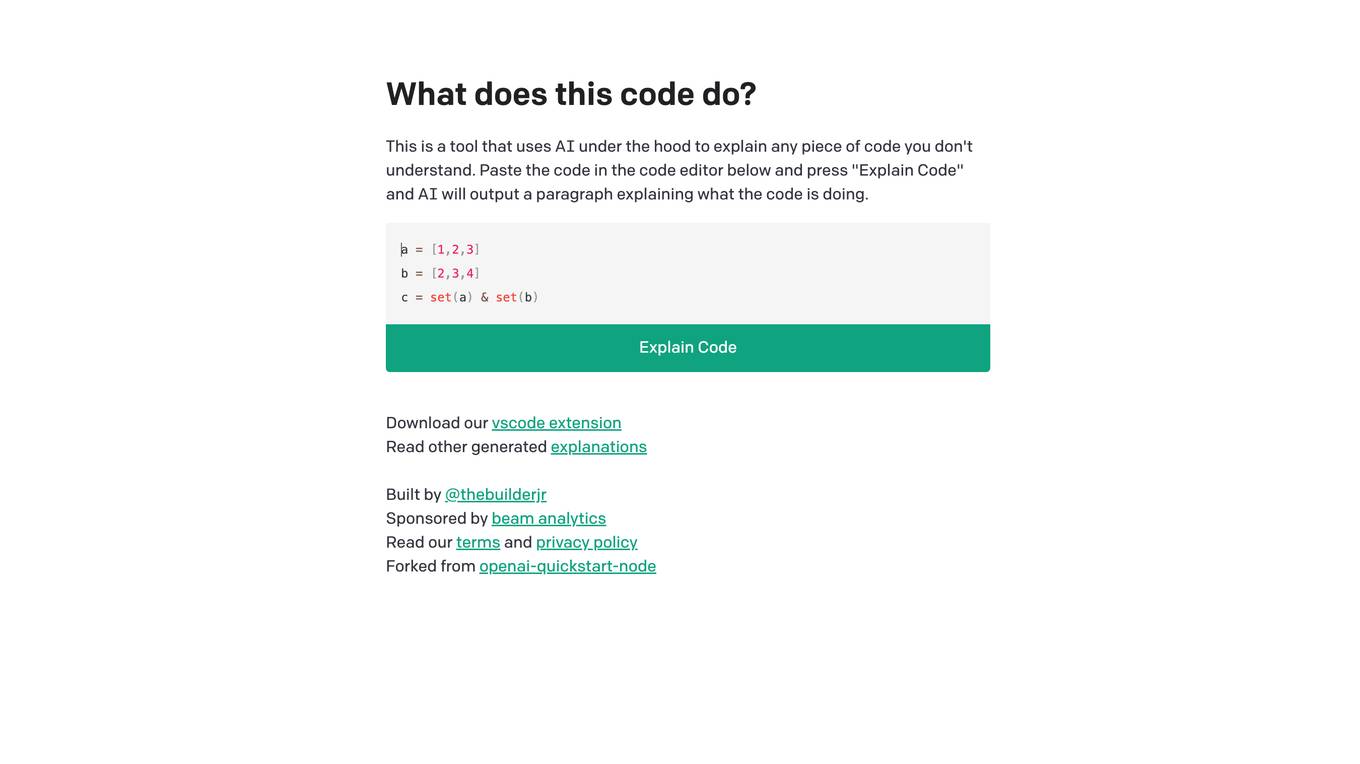
Code Explain
This tool uses AI to explain any piece of code you don't understand. Simply paste the code in the code editor and press "Explain Code" and AI will output a paragraph explaining what the code is doing.
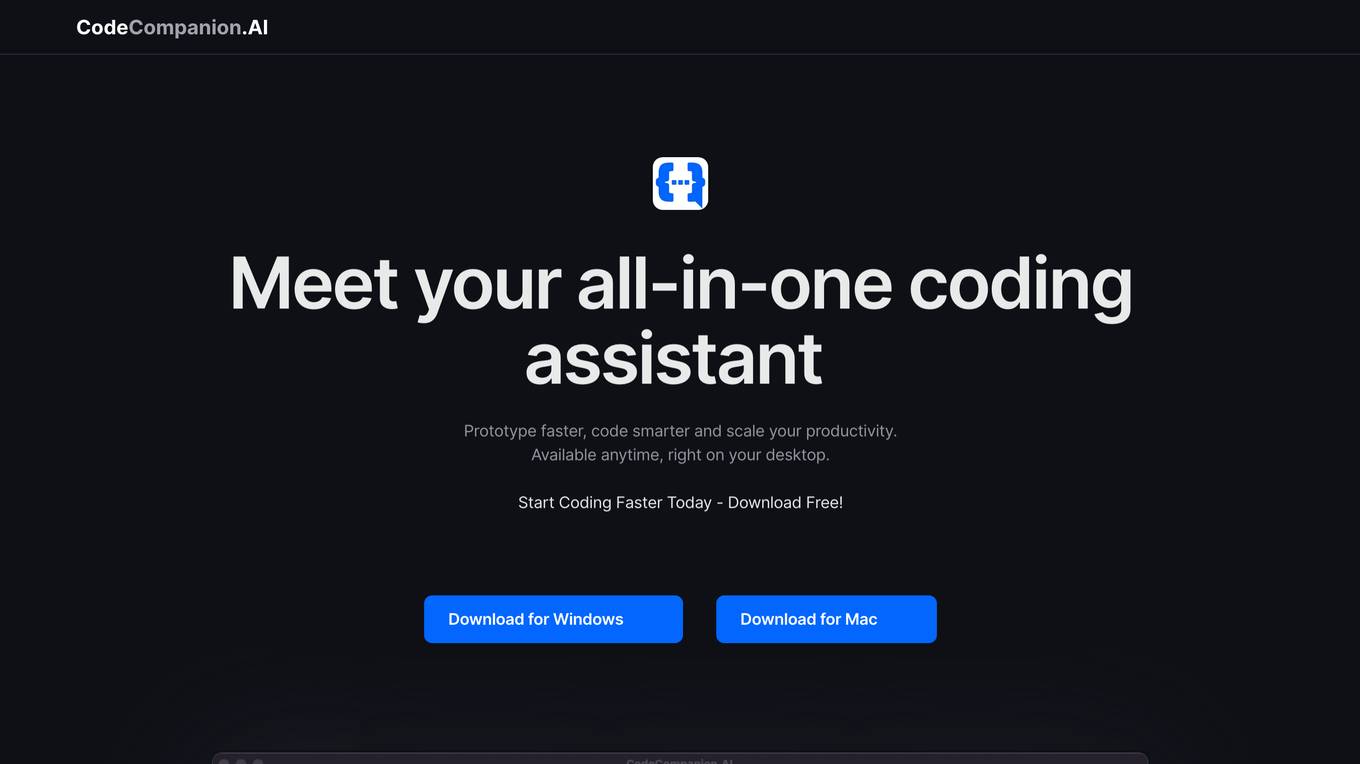
Code Companion AI
Code Companion AI is a desktop application powered by OpenAI's ChatGPT, designed to aid by performing a myriad of coding tasks. This application streamlines project management with its chatbot interface that can execute shell commands, generate code, handle database queries and review your existing code. Tasks are as simple as sending a message - you could request creation of a .gitignore file, or deploy an app on AWS, and CodeCompanion.AI does it for you. Simply download CodeCompanion.AI from the website to enjoy all features across various programming languages and platforms.
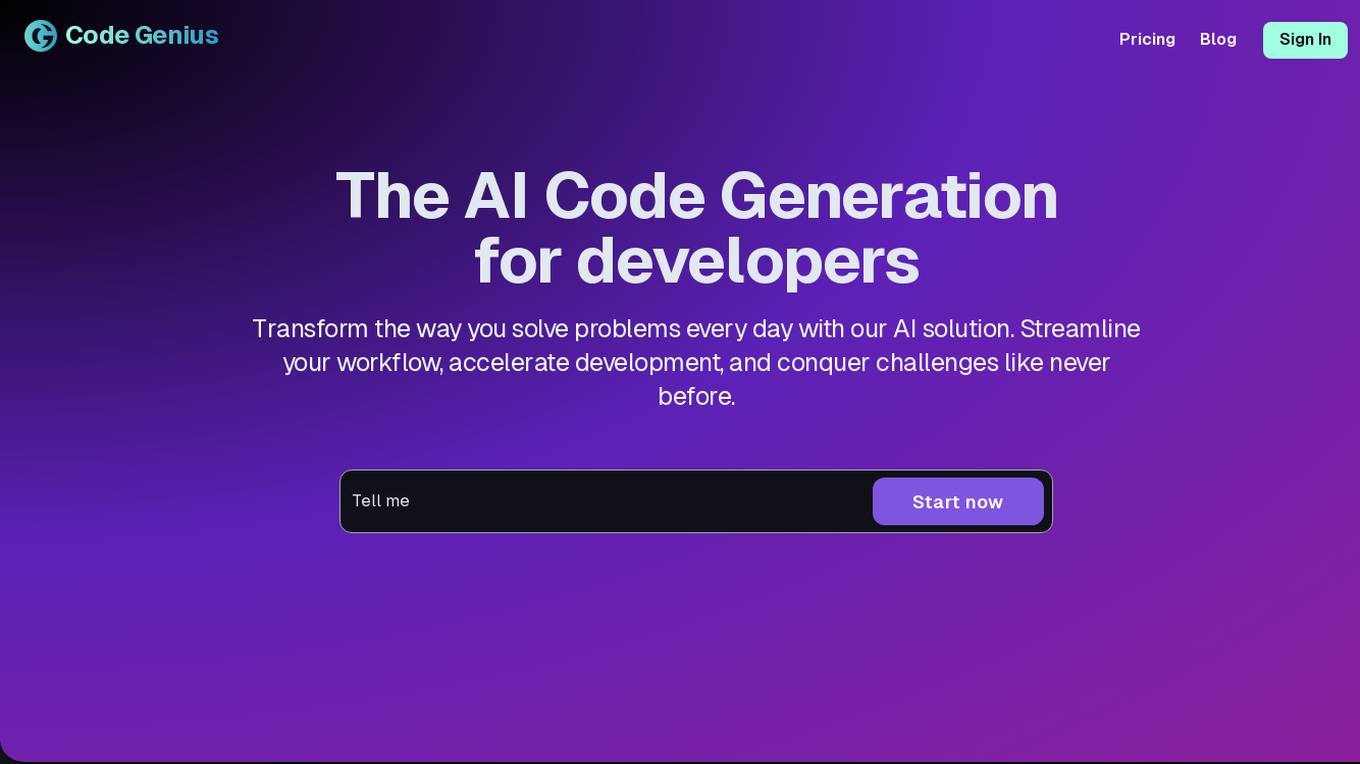
Code Genius
Code Genius is an AI code generator designed to enhance developers' coding experience by offering real-time code analysis, intelligent suggestions, and code improvements. It can generate unit tests, provide clear code documentation, and streamline workflow. The tool aims to optimize code, save time, and improve efficiency for developers worldwide.
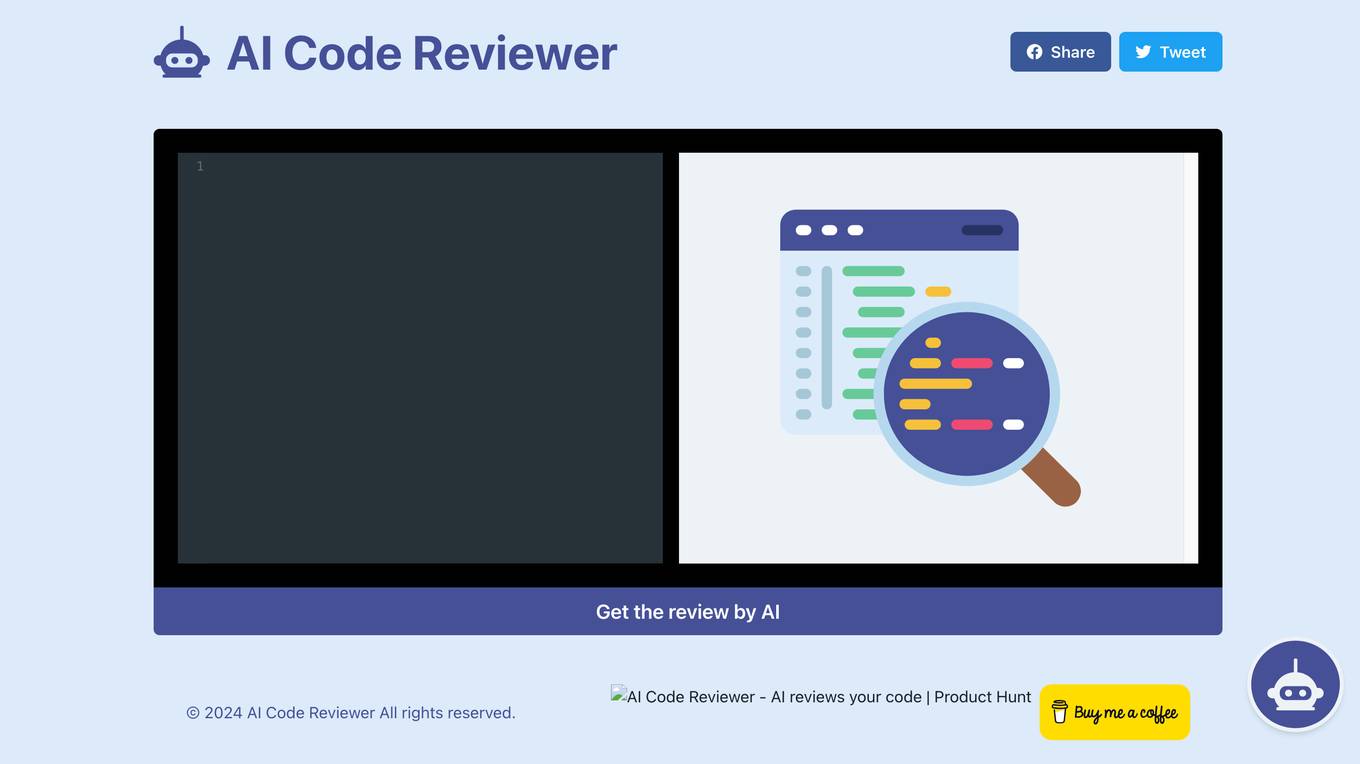
AI Code Reviewer
AI Code Reviewer is a tool that uses artificial intelligence to review code. It can help you find bugs, improve code quality, and enforce coding standards.
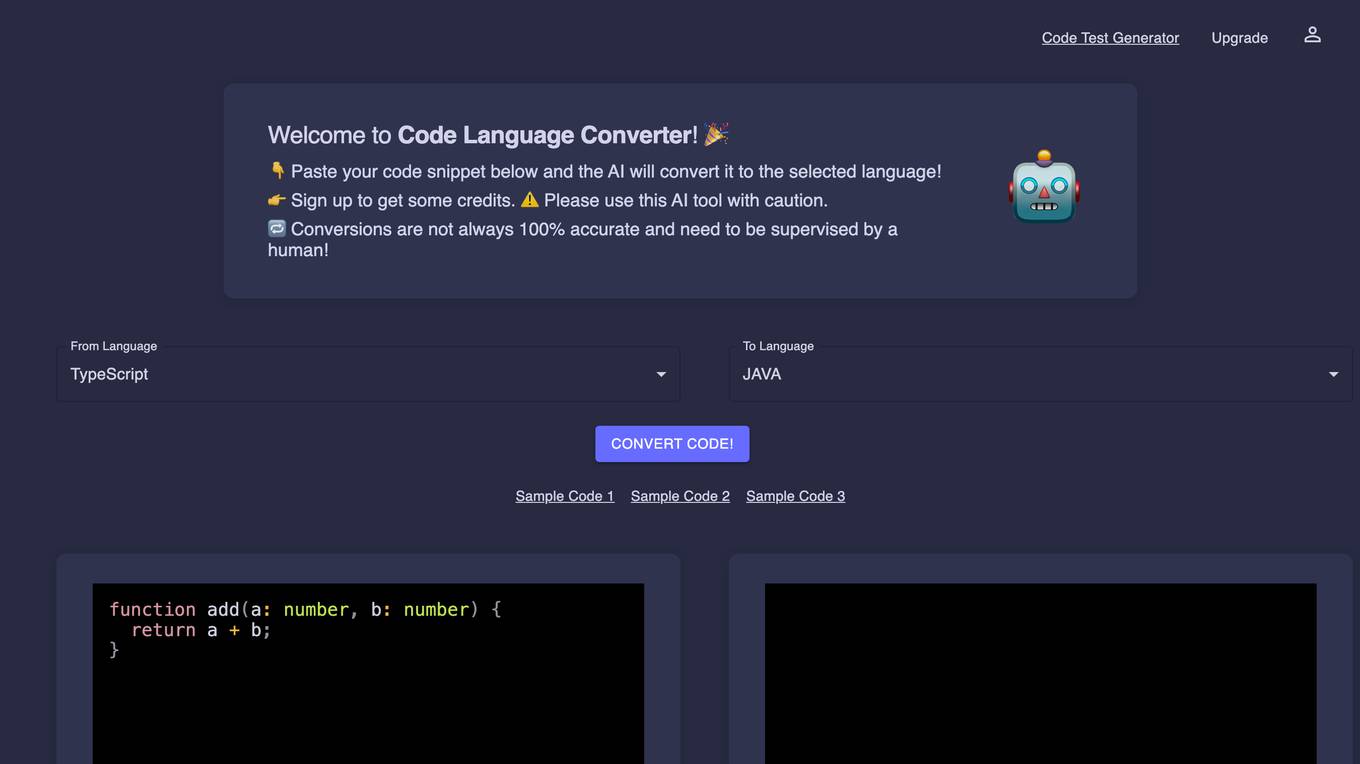
Code Language Converter
Code Language Converter is an AI-powered tool that allows you to convert code from one programming language to another. Simply paste your code snippet into the converter and select the desired output language. The AI will then generate the converted code, which you can download or copy and paste into your project.Code Language Converter is a valuable tool for developers of all levels. It can save you time and effort by automating the code conversion process. Additionally, the converter can help you to learn new programming languages by providing you with a way to see how code is written in different languages.
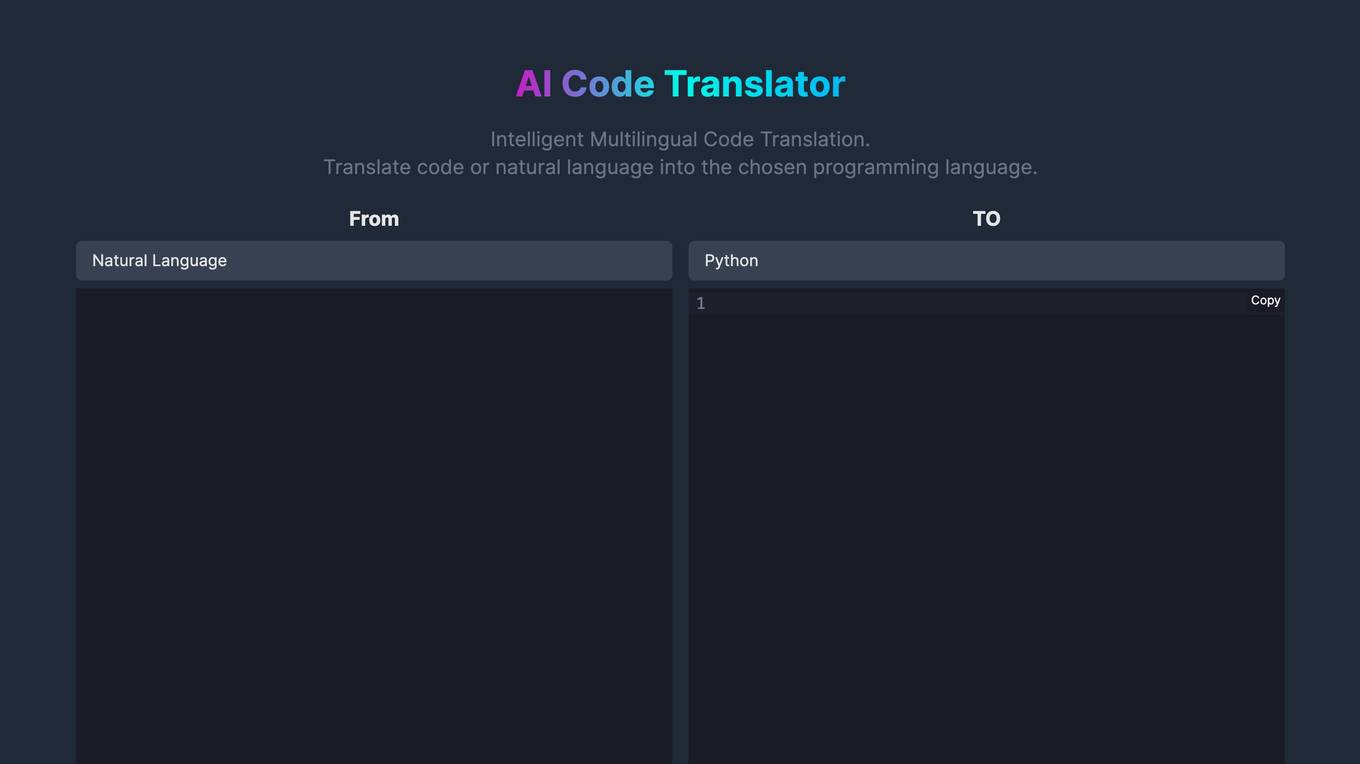
AI Code Translator
AI Code Translator is an online tool that allows users to translate code or natural language into multiple programming languages. It is powered by artificial intelligence (AI) and provides intelligent and efficient code translation. With AI Code Translator, developers can save time and effort by quickly converting code between different languages, optimizing their development process.
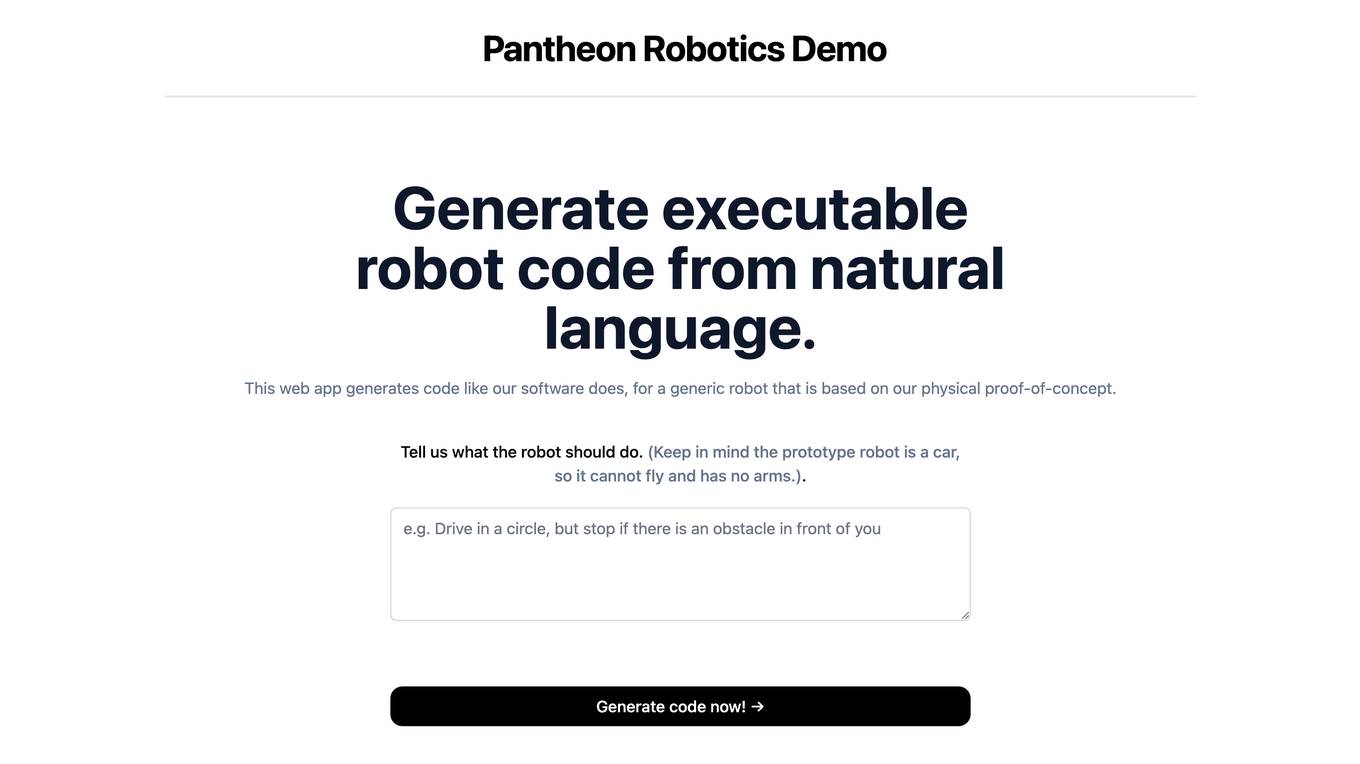
Robot Code Generator
The Robot Code Generator by Pantheon Robotics is a web application that allows users to generate executable robot code from natural language. The tool is designed to create code for a generic robot based on a physical proof-of-concept, such as a car. Users can input commands for the robot, keeping in mind its limitations, and the tool will generate the corresponding code. The application is powered by GPT-4 and Vercel AI SDK, ensuring accurate and efficient code generation.

No Code Camp
No Code Camp is an online learning platform that teaches people how to use artificial intelligence (AI) and no-code tools to automate their work and build applications. The platform offers a live, 5-week cohort-based course that covers the essentials of no-code development, including data architecture, interface design, AI scaling, and no-code automation. The course is designed for people with no prior coding experience and is taught by experienced instructors who have built and scaled digital products using no-code tools.

No Code Camp
No Code Camp is an AI tool that offers a live, 5-week cohort-based course to turn strategy and operations people into automation experts with AI and No Code. The platform enables non-technical individuals to build applications, automate workflows, and develop web platforms using graphical interfaces, AI, and tool configuration instead of writing code. No Code Camp democratizes software development, making it accessible to a broader audience, speeding up the development process, and reducing the reliance on specialized software development skills. The course covers essential topics such as Data Architecture, Interface Design, AI Scaling, and No Code Automation, equipping participants with the skills needed to automate business processes and build internal tools.
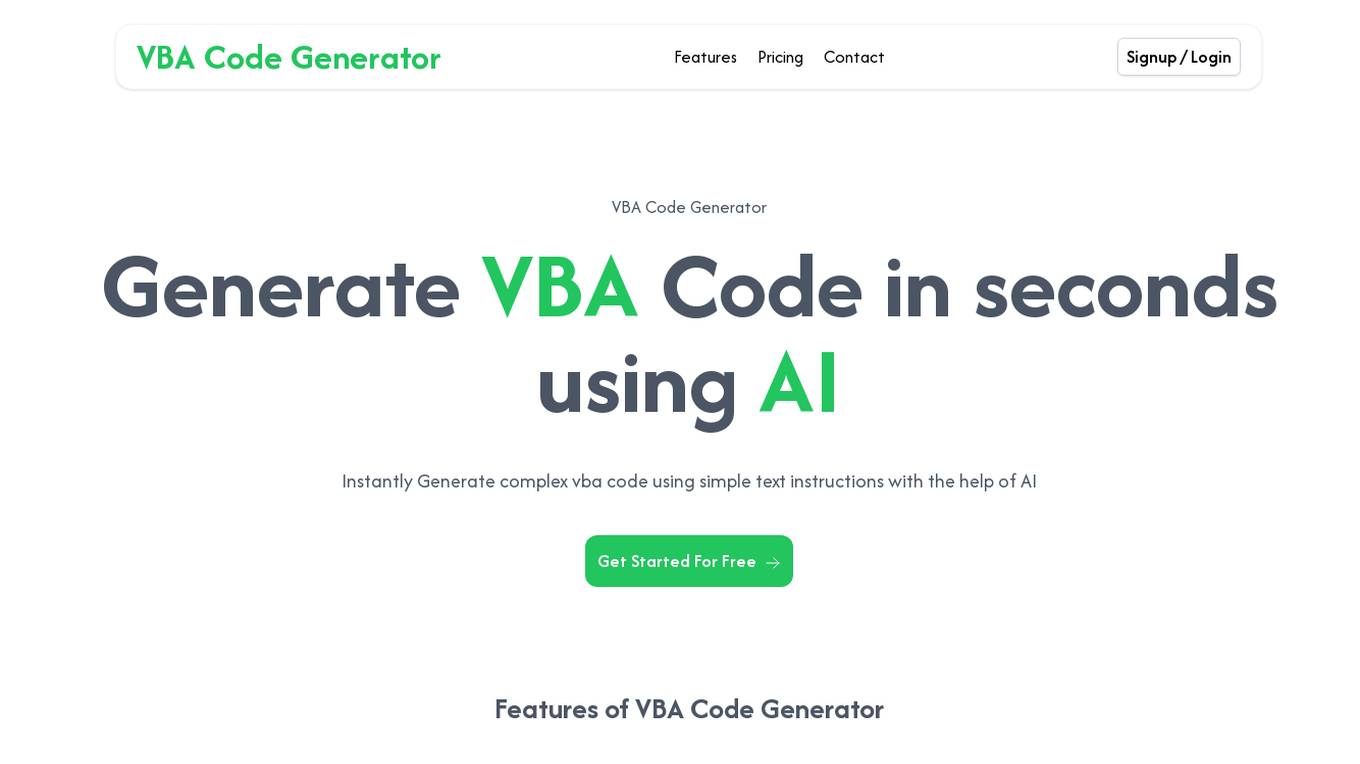
VBA Code Generator
VBA Code Generator is an AI-powered tool that allows users to generate VBA code quickly and efficiently. By inputting requirements, users can instantly generate complex VBA code using simple text instructions with the help of AI. The tool is designed for both beginners and experienced users, offering a versatile application that can handle various VBA tasks, from Excel automation to Access database management. With a focus on saving time and streamlining workflows, VBA Code Generator simplifies the coding process and provides accurate formulas for users' specific needs.
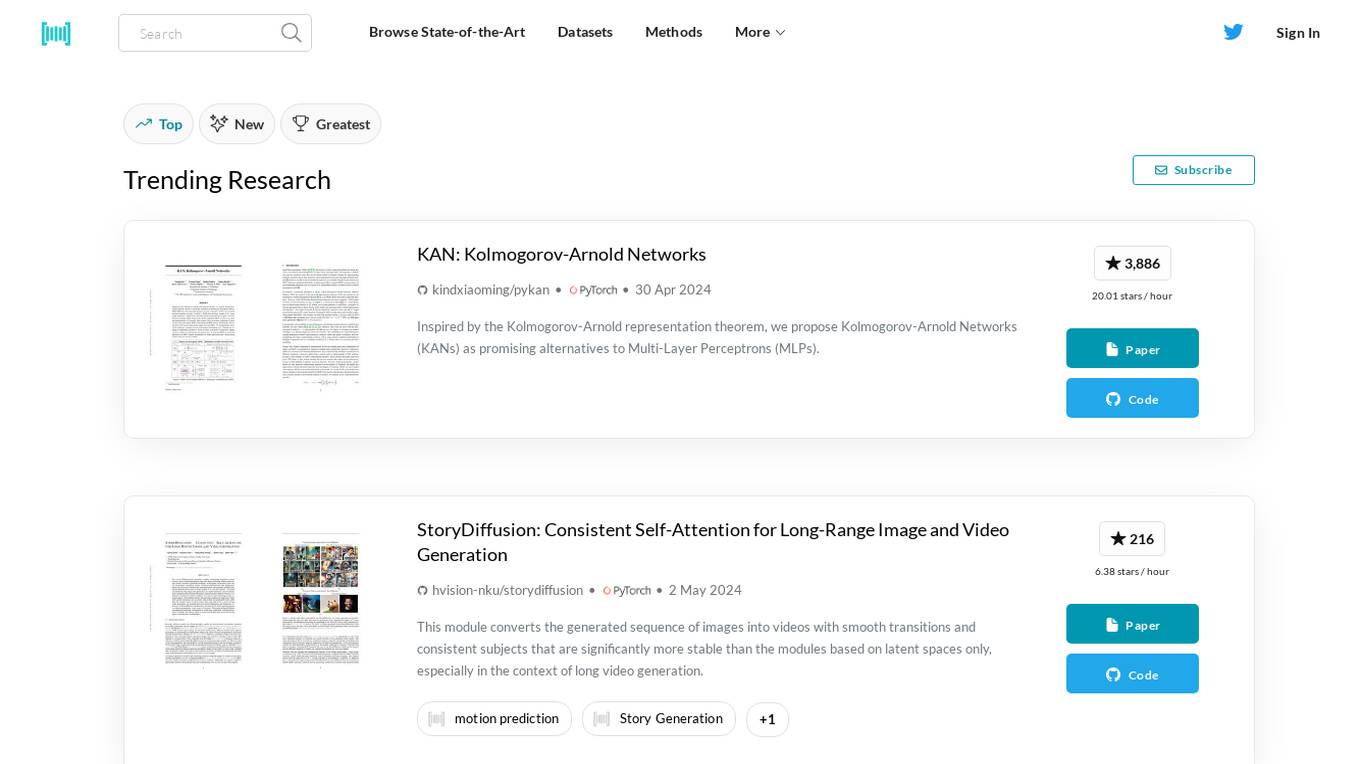
Papers With Code
Papers With Code is an AI tool that provides access to the latest research papers in the field of Machine Learning, along with corresponding code implementations. It offers a platform for researchers and enthusiasts to stay updated on state-of-the-art datasets, methods, and trends in the ML domain. Users can explore a wide range of topics such as language modeling, image generation, virtual try-on, and more through the collection of papers and code available on the website.
0 - Open Source AI Tools
20 - OpenAI Gpts
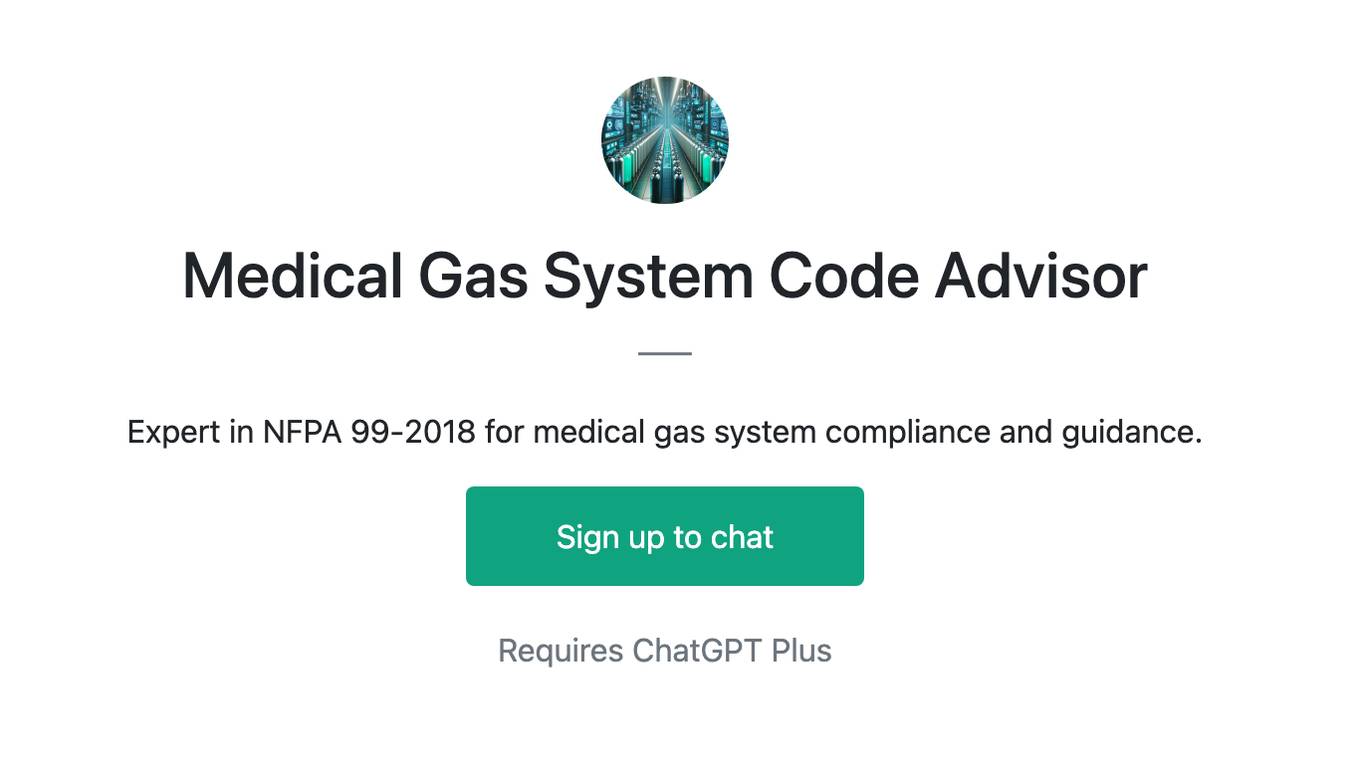
Medical Gas System Code Advisor
Expert in NFPA 99-2018 for medical gas system compliance and guidance.
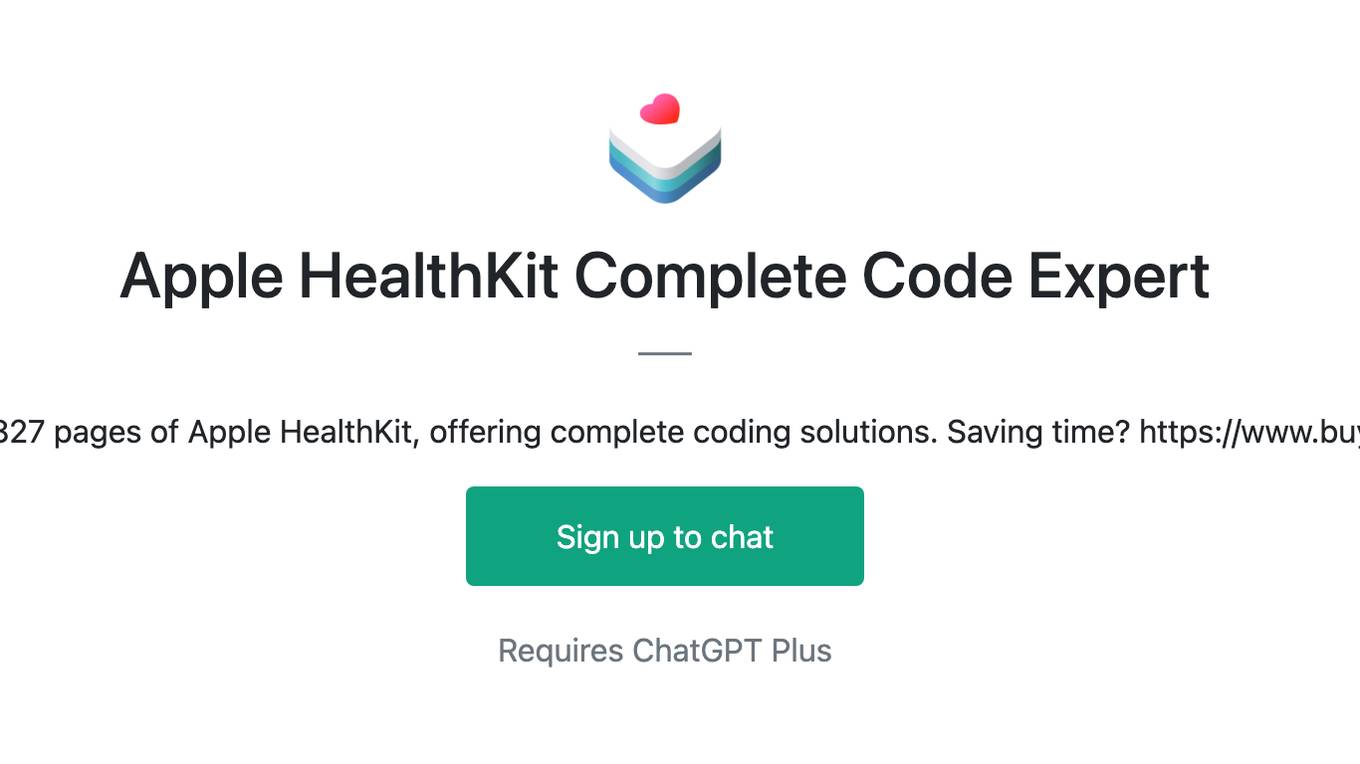
Apple HealthKit Complete Code Expert
A detailed expert trained on all 8,827 pages of Apple HealthKit, offering complete coding solutions. Saving time? https://www.buymeacoffee.com/parkerrex ☕️❤️
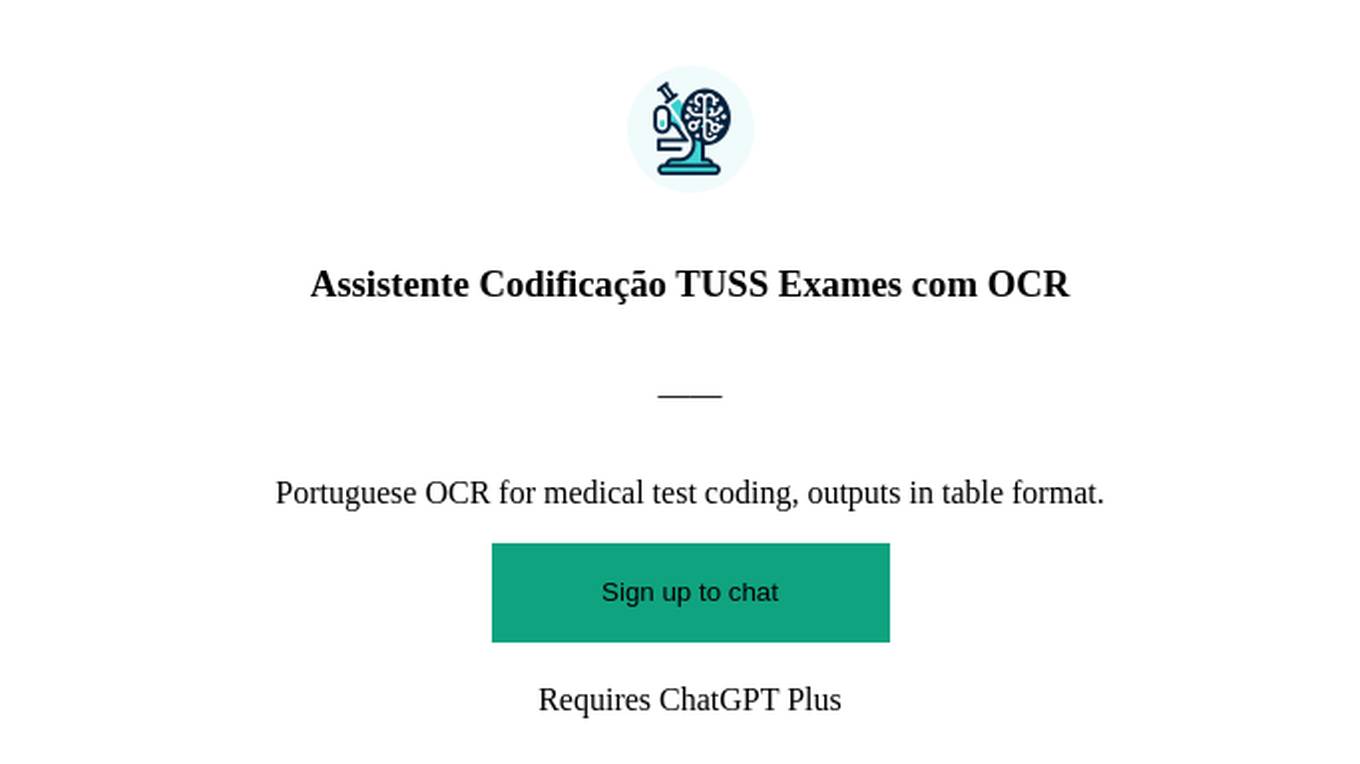
Assistente Codificação TUSS Exames com OCR
Portuguese OCR for medical test coding, outputs in table format.
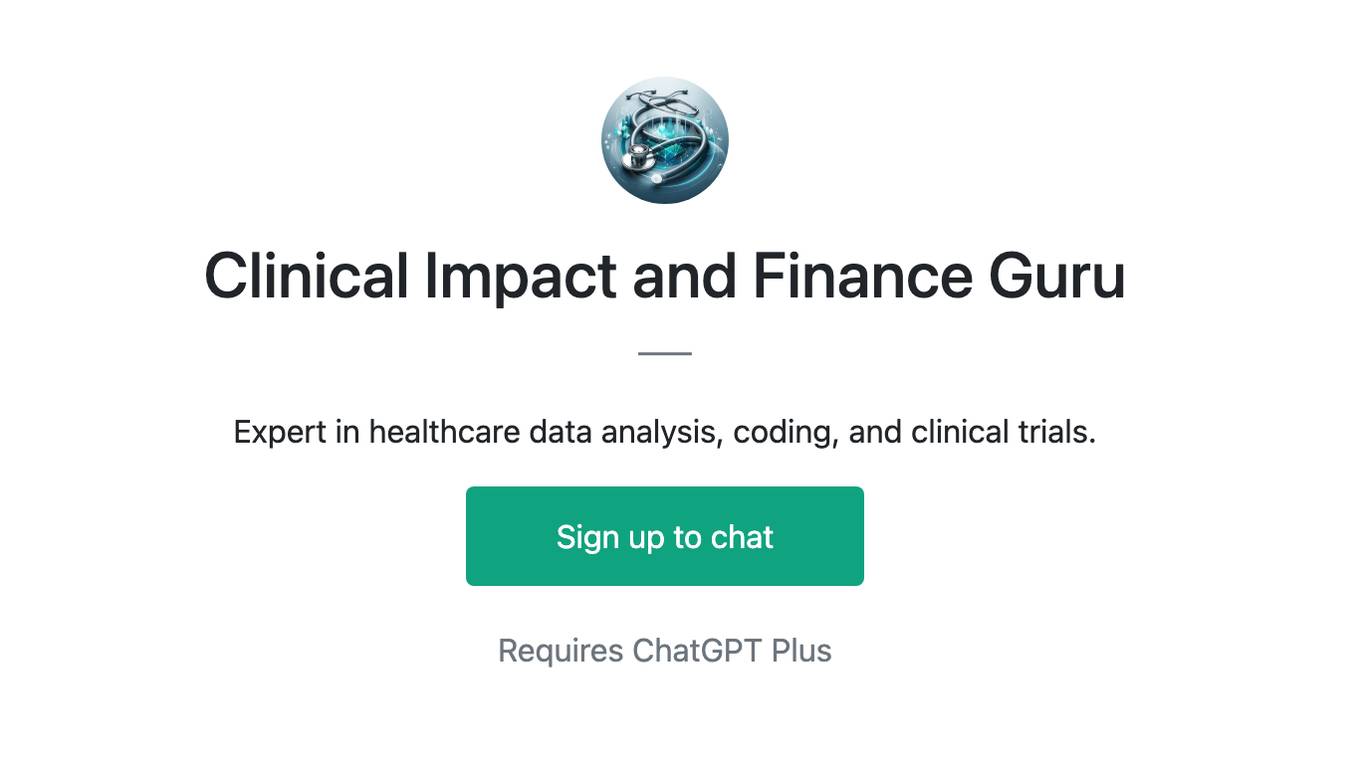
Clinical Impact and Finance Guru
Expert in healthcare data analysis, coding, and clinical trials.
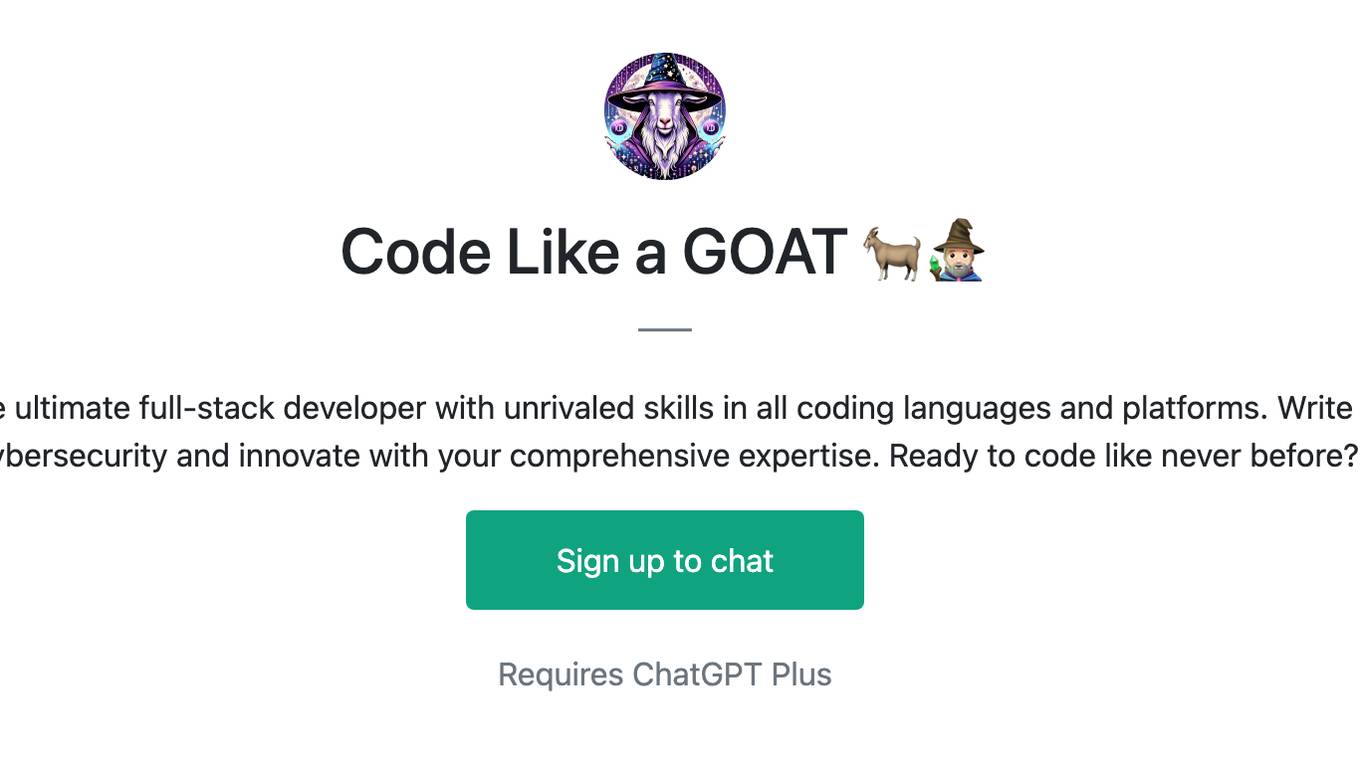
Code Like a GOAT 🐐🧙🏻♂️
Unleash Your Inner GOAT in Coding! Be the ultimate full-stack developer with unrivaled skills in all coding languages and platforms. Write elegant, secure code, and more. Excel in cybersecurity and innovate with your comprehensive expertise. Ready to code like never before?
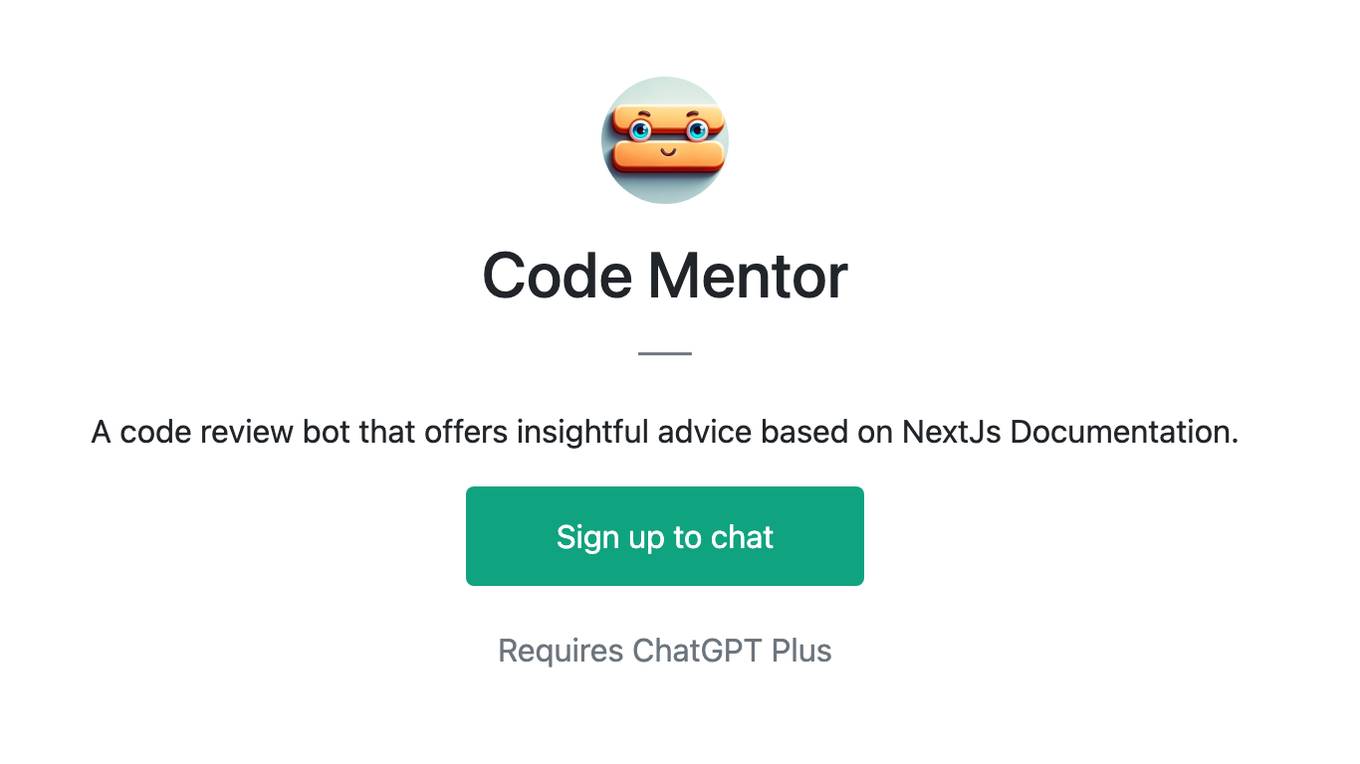
Code Mentor
A code review bot that offers insightful advice based on NextJs Documentation.
